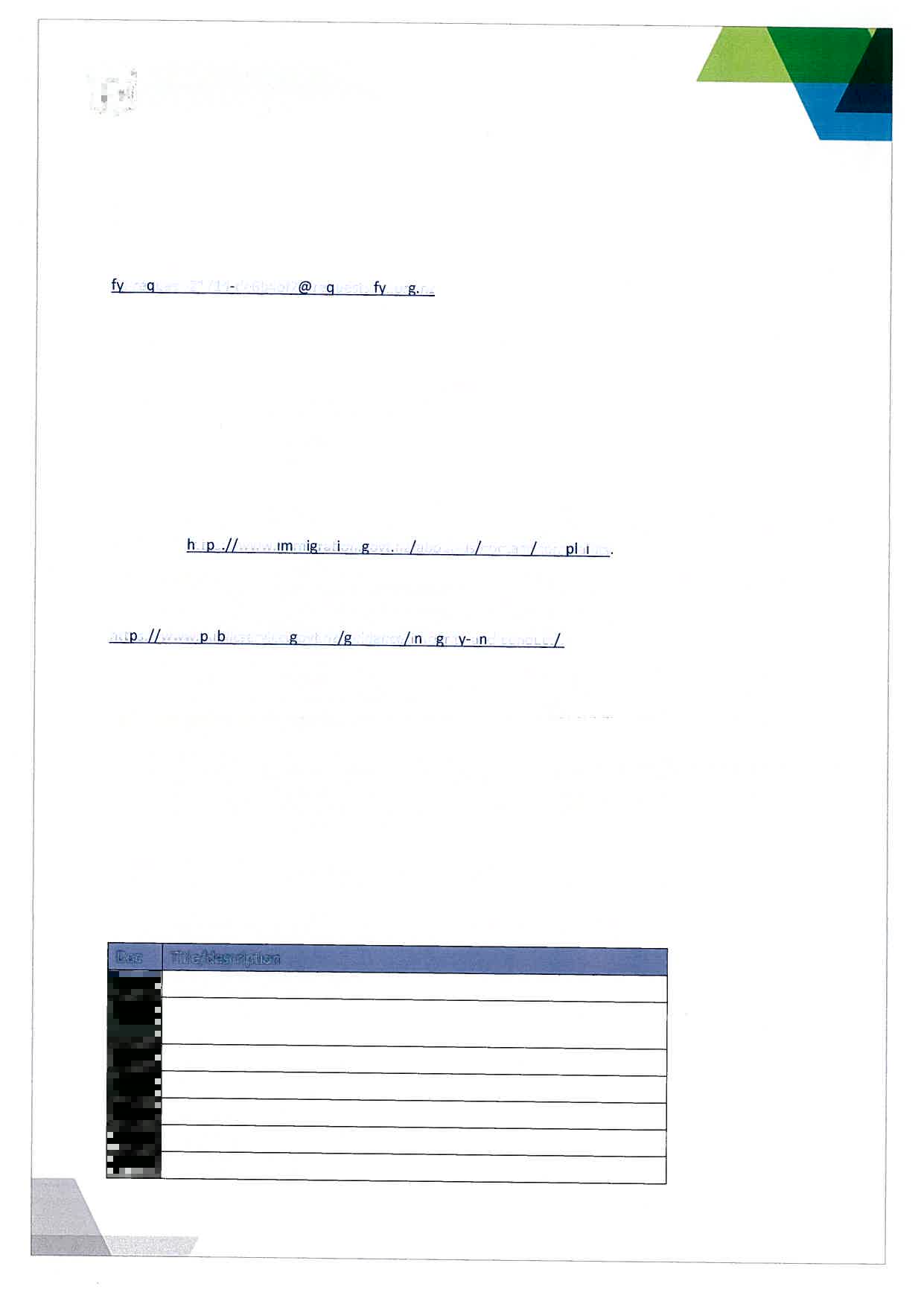
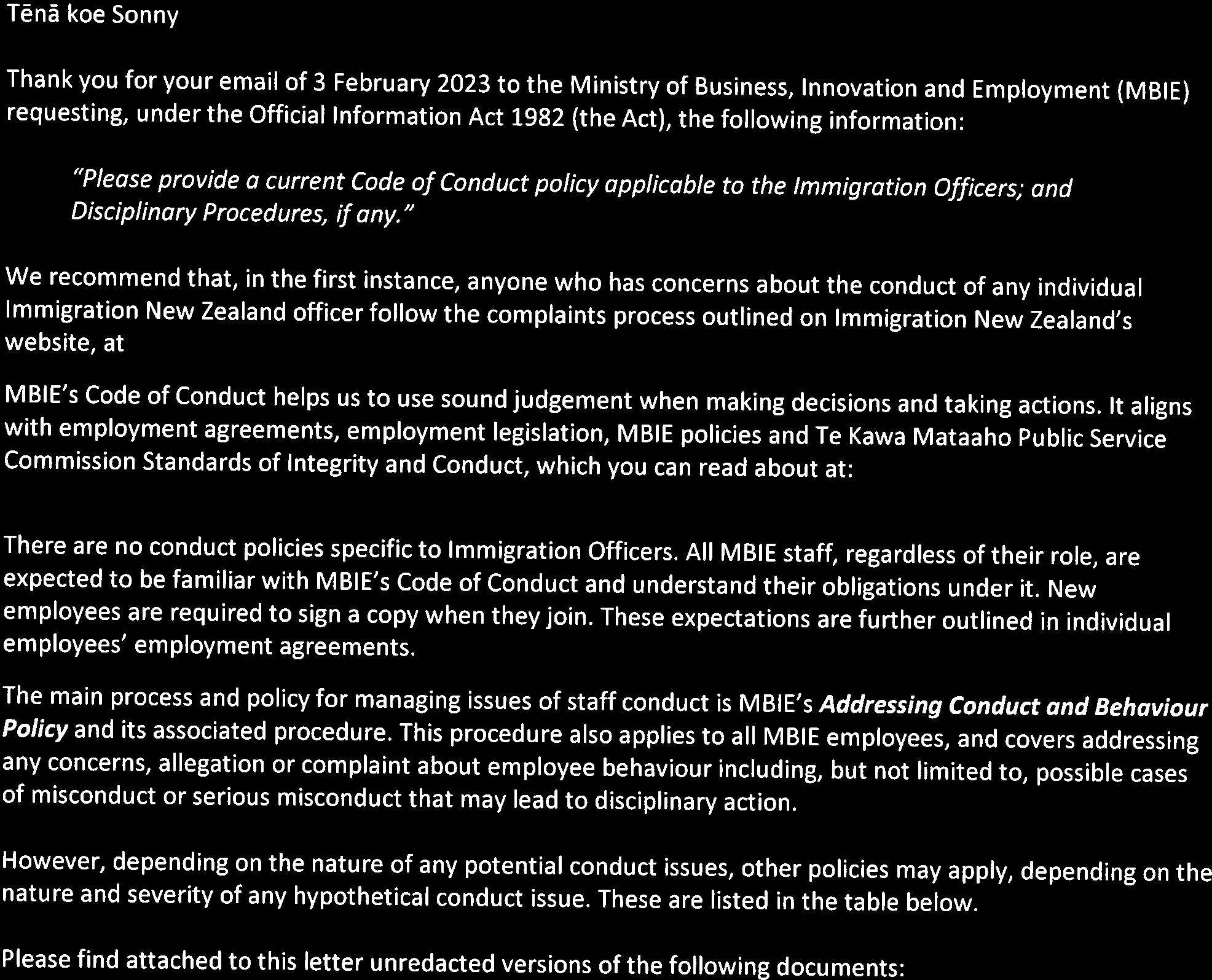

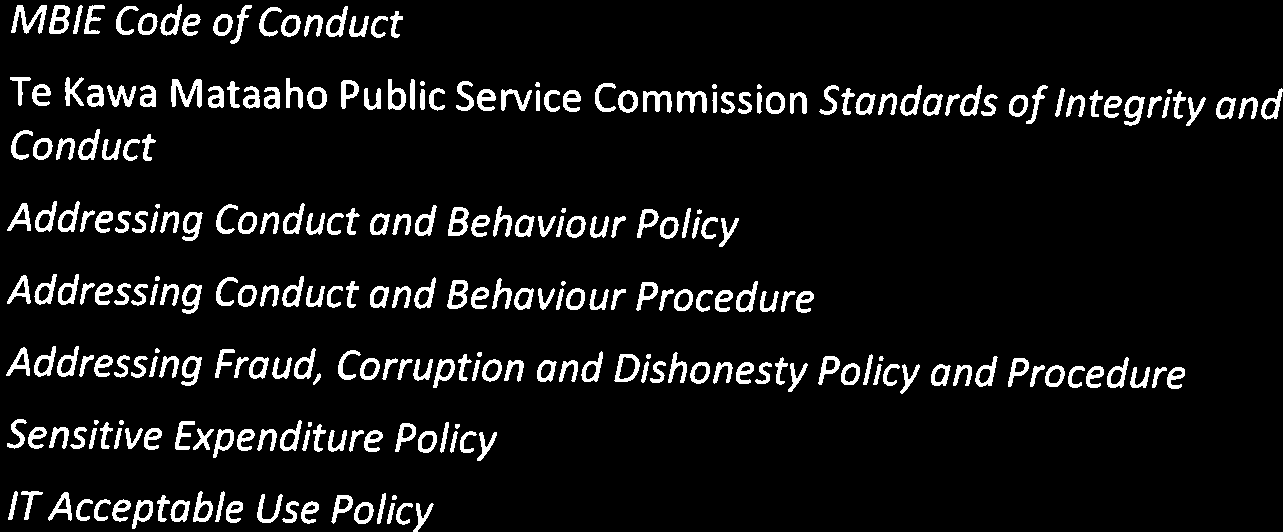



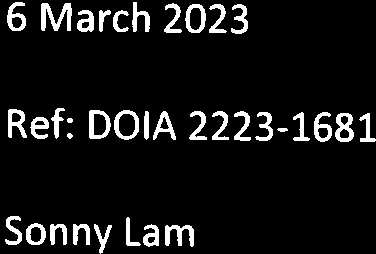











MINISTRY OF BUSINESS, INNOVATION AND EMPLOYMENT
CODE OF CONDUCT
2015
1
1
ACT
MBIE Code of Conduct
2015
INFORMATION
OFFICIAL
THE
UNDER
RELEASED
MINISTRY OF BUSINESS, INNOVATION AND EMPLOYMENT
CODE OF CONDUCT
2015
2
ACT
INFORMATION
OFFICIAL
THE
UNDER
ISBN: 978-0-478-43386-9
PUBLISHING DATE: April 2015
© CROWN COPYRIGHT
RELEASED
MINISTRY OF BUSINESS, INNOVATION AND EMPLOYMENT
CODE OF CONDUCT
2015
3
MINISTRY OF BUSINESS, INNOVATION AND EMPLOYMENT CODE
OF CONDUCT
ACT
BEING FAIR
BEING IMPARTIAL
BEING RESPONSIBLE
BEING
TRUSTWORTHY
We strive to make a
We respect the
We strive to improve
We work to the best
positive difference to
authority of
MBIE’s performance
of our abilities at all
the well-being of New
current and future
and efficiency.
times.
Zealand and all New
governments.
We are mindful that
We ensure our actions
Zealanders.
We accept that our
MBIE’s resources are
and decisions are
SHAPE
We work to make our
official responsibilities
publicly owned and
not affected by our
services accessible,
may affect the way we
funded, and we will
personal interests or
efficient and effective
engage in activities
act responsibly in our
relationships.
for all.
outside of work
use and management
of them.
INFORMATION
We respect the
We maintain the
We are professional
We undertake
backgrounds,
political neutrality
and objective in our
personal and
differences and
required to enable us
language, actions and
professional
perspectives of all
to work constructively
interactions.
development
those with whom we
with current & future
to improve the
We listen to and
work and serve.
governments.
performance of
provide feedback
TE
ourselves and MBIE.
We share our
We are inclusive,
openly, reconsider the
knowledge,
respectful and
ways ‘we have always
We are open with
experience and
responsive in
done it’, and where
MBIE, and disclose
OFFICIAL
information to
our dealings
appropriate suggest
any commercial
COLLABORA
help others to be
with all people
new ways of doing
activities, financial,
successful.
regardless of their
things.
employment or
position, personal
personal interests
characteristics or
or relationships that
THE
situation.
might cause an actual,
perceived or potential
conflict of interest.
We act in the public
We carry out MBIE’s
We act lawfully.
We act with fairness,
interest and with a
functions and provide
impartiality, courtesy,
We treat information
spirit of service to the
impartial, robust and
integrity and honesty
with care, and use and
UNDER
community.
comprehensive advice
in everything we do.
disclose it only for its
and delivery of service
intended purpose.
We make sure our
that is unaffected
actions can withstand
by personal interest,
public, legal and
values, beliefs and/or
DELIVER
parliamentary
political bias.
scrutiny and will
We act professionally
enhance MBIE’s
at work and in our
reputation.
dealings with those
with whom we work
and serve
RELEASED
MINISTRY OF BUSINESS, INNOVATION AND EMPLOYMENT
CODE OF CONDUCT
2015
4
SPECIFIC CODE OF CONDUCT REQUIREMENTS:
Note: The following requirements are not an exhaustive list. Breaches of these
requirements may amount to misconduct or serious misconduct depending on the
nature and severity of a breach.
ACT
Being Fair
We strive to make a positive difference to the well-being of New Zealand and all
New Zealanders
› You will undertake the duties of your position diligently and to a satisfactory standard to help
MBIE meet its purpose.
We work to make our services accessible, efficient and effective for all
› You will not access or use MBIE information and systems for your personal gain, curiosity, or
interest or for the unauthorised gain, curiosity, or interest
of another person.
We respect the backgrounds, differences and perspectives of all those with whom we work
INFORMATION
and serve
› You will refrain from physical, verbal, written or psychological violence or bullying of any kind,
racial or sexual harassment and unlawful discrimination.
› You will value and support the contribution of all colleagues.
› You will treat our customers and other people you have dealings with in your role with courtesy
and respect.
We share our knowledge, experience and information to help others to be successful
› You will work constructively and positively with your colleagues.
OFFICIAL
We act in the public interest and with a spirit of service to the community
› You will share relevant knowledge and information with your colleagues to achieve MBIE’s
objectives and goals.
THE
› You will contribute to a healthy and safe workplace.
Being Impartial
We respect the authority of current and future governments
› You will be politically neutral in all of your dealings in the workplace, irrespective of what your
personal views may be.
UNDER
› You can be a member of a political party however you will not reveal advice given to the
Government and you will abide by your duty of confidentiality to MBIE.
We accept that our official responsibilities may affect the ways we engage in activities outside
of work
› You will not publically criticise or comment in a personal capacity on policies with which you have
been professionally involved or associated.
› You will make it clear to others when you are commenting as a private individual.
› You may communicate privately with a Minister or MP about matters outside of your role at MBIE,
but if you are in a senior position or work closely with Ministers, you should exercise particular
RELEASED
care in doing so.
MINISTRY OF BUSINESS, INNOVATION AND EMPLOYMENT
CODE OF CONDUCT
2015
5
› If you wish to communicate directly with Ministers and MPs in your personal capacity about
matters concerning MBIE you will first raise the matter with the Chief Executive.
› You will not participate in a political event that advertises your official capacity within MBIE.
› You will not approach a Minister or MP about an employment relationship problem. The process for
addressing such issues is outlined in your employment agreement.
ACT
We maintain the political neutrality required to enable us to work constructively with current and
future governments
› You will provide full, frank and impartial advice to the Government if required in the course of
your duties.
› You will ensure that your contribution to any public debate or discussion on policy matters
maintains the discretion and neutrality appropriate to your position.
› If approached directly by an MP, you will ensure that any such dealings are addressed and seen to
be addressed impartially.
We are inclusive, respectful and responsive in our dealings with all people regardless of their
position, personal characteristics or situation
› You will not unlawfully discriminate against any person.
› You will work collaboratively with your colleagues and external stakeholders.
INFORMATION
We carry out MBIE’s functions and provide impartial, robust and comprehensive advice and delivery
of service that is unaffected by personal interest, values, beliefs and/or political bias
› If you are in a position where you are required to give advice to the Government you have a
responsibility to provide such advice honestly, impartially and in a full and frank manner, drawing
attention to the possible consequences of policies or proposals.
We act professionally at work and in our dealings with those with whom we work and serve
› If you find that your personal views or beliefs on an issue are in conflict with the Government to an
OFFICIAL
extent that you cannot perform your duties in a politically neutral way, you will immediately raise
this with your manager.
› You will not make a personal attack on any person.
› You will follow all lawful and reasonable instructions.
THE
Being Responsible
We strive to improve MBIE’s performance and efficiency
› You will familiarise yourself with and adhere to all relevant MBIE policies, procedures and practices.
We are mindful that MBIE’s resources are publically owned and funded and we will act responsibly
in our use and management of them
UNDER
› You will not use MBIE’s systems to access, download, store or send any pirated or unlawful
software, images, offensive or otherwise inappropriate material.
› You will not use MBIE’s work phones, vehicles, internet or email inappropriately or excessively. This
includes your use of social networking sites such as Facebook and Twitter and websites such as
Trade me. If you have questions about what is inappropriate or excessive use, please refer to the
relevant policy or speak to your manager.
› You will not possess or access objectionable, offensive or pornographic material at work or while
using MBIE’s facilities.
› You will not use MBIE’s networks to stream video or audio for personal use.
RELEASED
We are professional and objective in our language, actions and interactions
MINISTRY OF BUSINESS, INNOVATION AND EMPLOYMENT
CODE OF CONDUCT
2015
6
› You will not be present at work in an unfit state, for example being under the influence of alcohol,
drugs or other intoxicants.
› You will maintain standards of behaviour, language and dress that are appropriate to the
workplace and that uphold a positive image of MBIE.
› When posting online (for example on Facebook or Twitter) you will not say anything that will bring
ACT
MBIE into disrepute or compromise your ability to do your job.
We listen to and provide feedback openly, reconsider the ways ‘we have always done it’ and where
appropriate suggest new ways of doing things
› You will act in good faith.
› You will maintain open communication and share information.
We act lawfully
› You will obey the law of the country in which you are working.
› You will disclose past criminal convictions not covered by the Criminal Records (Clean Slate) Act
2004 or any other convictions that you are legally required to disclose.
› You will disclose new convictions and/or pending criminal charges.
› You will not unlawfully take abuse or misuse MBIE’s property.
INFORMATION
We treat information with care, and use and disclose it only for its intended purpose
› You will maintain confidentiality in relation to work matters at all times, including after your
employment has ended.
› You will not use MBIE’s assets (which include property, systems, equipment, funds and
information) for personal gain or for the personal gain of another person.
› You will not use MBIE’s systems to access information on individuals or organisations where you
have no business reason to access the information (this includes family, friends, acquaintances
and people in the public eye).
OFFICIAL
› You will not pass on or sell MBIE information or information held by MBIE to a third party, for
example to a family member or a collection agency, or share information about a tender process
with a company participating in that process.
THE
› You will not store or use MBIE information on unapproved ICT systems or services such as
personal email accounts and cloud web services.
Being Trustworthy
We work to the best of our ability at all times
› You will carry out your duties efficiently and use your skills and resources to the best of your
ability and be present at and available for work as required.
UNDER
› You will perform your role in line with the performance and behaviour expectations set by your
manager
› You will not ask for, accept or offer a gift, bribe, benefit, payment or other favour in return for the
provision of MBIE’s services, unless specifically permitted to do so by MBIE’s policies.
We ensure our actions are not affected by our personal interests or relationships
› You will not access or work on matters for your family, friends or acquaintances, nor provide them
with unauthorised advice or assistance.
› If you feel that a personal relationship means that you cannot be objective in the performance of
your duties, you will raise the matter with your manager immediately.
RELEASED
MINISTRY OF BUSINESS, INNOVATION AND EMPLOYMENT
CODE OF CONDUCT
2015
7
We undertake personal and professional development to improve the performance of ourselves
and MBIE
› You will be active in your own self-development and take opportunities to enhance your
performance.
› You will ensure that you remain up to date with any continuous professional development that
may be required for you to perform your role.
ACT
We are open with MBIE and disclose any commercial activities, financial, employment, personal
interests or relationships that might cause an actual, perceived or potential conflict of interest
› You must perform your duties honestly and impartially and avoid any personal, financial or
professional situations which may compromise (or be seen to compromise) your integrity.
For example, giving preferential treatment to an organisation in which you have an interest.
› You will ensure that your personal views do not impact on your work at MBIE. This includes
ensuring that any personal adherence to or work for a particular political or moral cause or
movement does not impact your work performance, discredit MBIE or jeopardise its relationship
with clients and/or the Minister.
› You will disclose all conflicts of interest (including potential and perceived conflicts) to your
manager. For example, a family involvement in a company tendering for business with MBIE,
ownership of a rental property during a dispute with tenants, when a family member appears on
INFORMATION
your recruitment panel, acting on behalf of others in tribunals or processing the application of a
person known or related to you (for example processing an immigration application for a family
friend). This can also include conflicts of interest arising from being a member of a club, society
or association, having a professional or legal obligation to someone else (such as being a trustee)
and owning a beneficial interest in a trust/land.
› You will declare any secondary employment or contracting/consulting or business ventures that
you are involved with.
› You will advise MBIE if you are made bankrupt or enter into a No Asset Procedure.
OFFICIAL
› You will disclose if you hold another public office.
› You will disclose all gifts you accept over the value of $50 that are offered in the course of your
employment, such as prizes, tickets to sporting events, fees, discounts, upgrades, free travel,
products, services, entertainment and hospitality or any other form of benefit, favour, reward
THE
or inducement.
We act with fairness, impartiality, courtesy, integrity and honesty in everything we do
› You will carry out all lawful and reasonable instructions.
› You will ensure that you don’t incur any liabilities without proper authorisation.
› You will not use your position as an employee of MBIE to obtain information not normally required
by you in the course of your employment.
UNDER
› You will respect others’ privacy.
› We make sure our actions can withstand public, legal and parliamentary scrutiny and will enhance
MBIE’s reputation
› You will not bring MBIE into disrepute. For example by making statements to the media without
authorisation, or making public criticism of or comments on (including on social media) MBIE and/
or policies with which you have been professionally involved or associated.
› You will ensure any communications you make, whether internally or externally, are professional
and respectful.
RELEASED
MINISTRY OF BUSINESS, INNOVATION AND EMPLOYMENT
CODE OF CONDUCT
2015
8
WHO THE CODE APPLIES TO
The Code of Conduct applies to (and creates enforceable obligations on the part of) all Ministry of
Business, Innovation and Employment employees, including managers, people working on a full time,
part time or temporary or casual basis and covers locally engaged employees working offshore. It
should be read in conjunction with your employment agreement and MBIE’s policies and procedures.
ACT
The Code of Conduct also applies to MBIE’s consultants and contractors and will form part of those
contractual arrangements to the extent specified in the contract between that person/company
and MBIE.
BREACHES OF THE CODE
Breaches of the Code of Conduct may, following investigation, result in disciplinary action, up to and
including a first formal warning; a final warning or dismissal either with or without notice.
If you have any questions about this Code of Conduct or what might be considered unacceptable
behaviour under the Code of Conduct or before you take a course of action that you are not entirely
sure complies with the Code of Conduct please discuss these with your manager. If you are aware of
behaviour occurring within MBIE that could contravene the Code of Conduct, you must also raise this
with your manager or another appropriate person.
INFORMATION
As a state servant you are also expected to read, understand and adhere to the State Services
Standards of Integrity and Conduct (which you can find at ssc.govt.nz).
PLEASE SIGN AND RETURN THE FOLLOWING PAGE TO YOUR MANAGER.
OFFICIAL
CODE OF CONDUCT ACKNOWLEDGEMENT
I
acknowledge
that:
(Print name)
THE
› I have received a copy of the Code of Conduct;
› I have read and understood my obligations under the Code of Conduct;
› I understand that a breach of the Code of Conduct may lead to disciplinary action.
Signed:
Date:
UNDER
RELEASED
MINISTRY OF BUSINESS, INNOVATION AND EMPLOYMENT
CODE OF CONDUCT
2015
9
ACT
INFORMATION
OFFICIAL
THE
UNDER
RELEASED
MINISTRY OF BUSINESS, INNOVATION AND EMPLOYMENT
CODE OF CONDUCT
2015
10
ACT
INFORMATION
OFFICIAL
THE
UNDER
RELEASED
SSC 11996 A3 Poster v4 19/6/07 10:53 AM Page 1
2
ACT
A code of conduct issued by the State Services Commissioner
under the State Sector Act 1988, section 57
WE MUST BE
FAIR
FAIR, IMPARTIAL,
We must:
– treat everyone fairly and with respect
RESPONSIBLE &
– be professional and responsive
TRUSTWORTHY
– work to make government services accessible and effective
– strive to make a difference to the well-being of New Zealand
INFORMATION
and all its people.
The State Services is made
IMPARTIAL
up of many organisations with
powers to carry out the work of
We must:
New Zealand’s democratically
– maintain the political neutrality required to enable us to work with
elected governments.
current and future governments
– carry out the functions of our organisation, unaffected by our
OFFICIAL
Whether we work in a department
personal beliefs
or in a Crown entity, we must act
– support our organisation to provide robust and unbiased advice
with a spirit of service to the
– respect the authority of the government of the day.
community and meet the same
THE
high standards of integrity and
conduct in everything we do.
RESPONSIBLE
We must comply with the
We must:
standards of integrity and conduct
– act lawfully and objectively
set out in this code. As part of
– use our organisation’s resources carefully and only for
complying with this code, our
intended purposes
UNDER
organisations must maintain
– treat information with care and use it only for proper purposes
policies and procedures that
– work to improve the performance and efficiency of our organisation.
are consistent with it.
For further information see
TRUSTWORTHY
www.ssc.govt.nz/code
We must:
– be honest
– work to the best of our abilities
– ensure our actions are not affected by our personal
interests or relationships
RELEASED
– never misuse our position for personal gain
– decline gifts or benefits that place us under any
obligation or perceived influence
– avoid any activities, work or non-work, that may
harm the reputation of our organisation or of
the State Services.
Published June 2007 ISBN: 978-0-478-30309-4
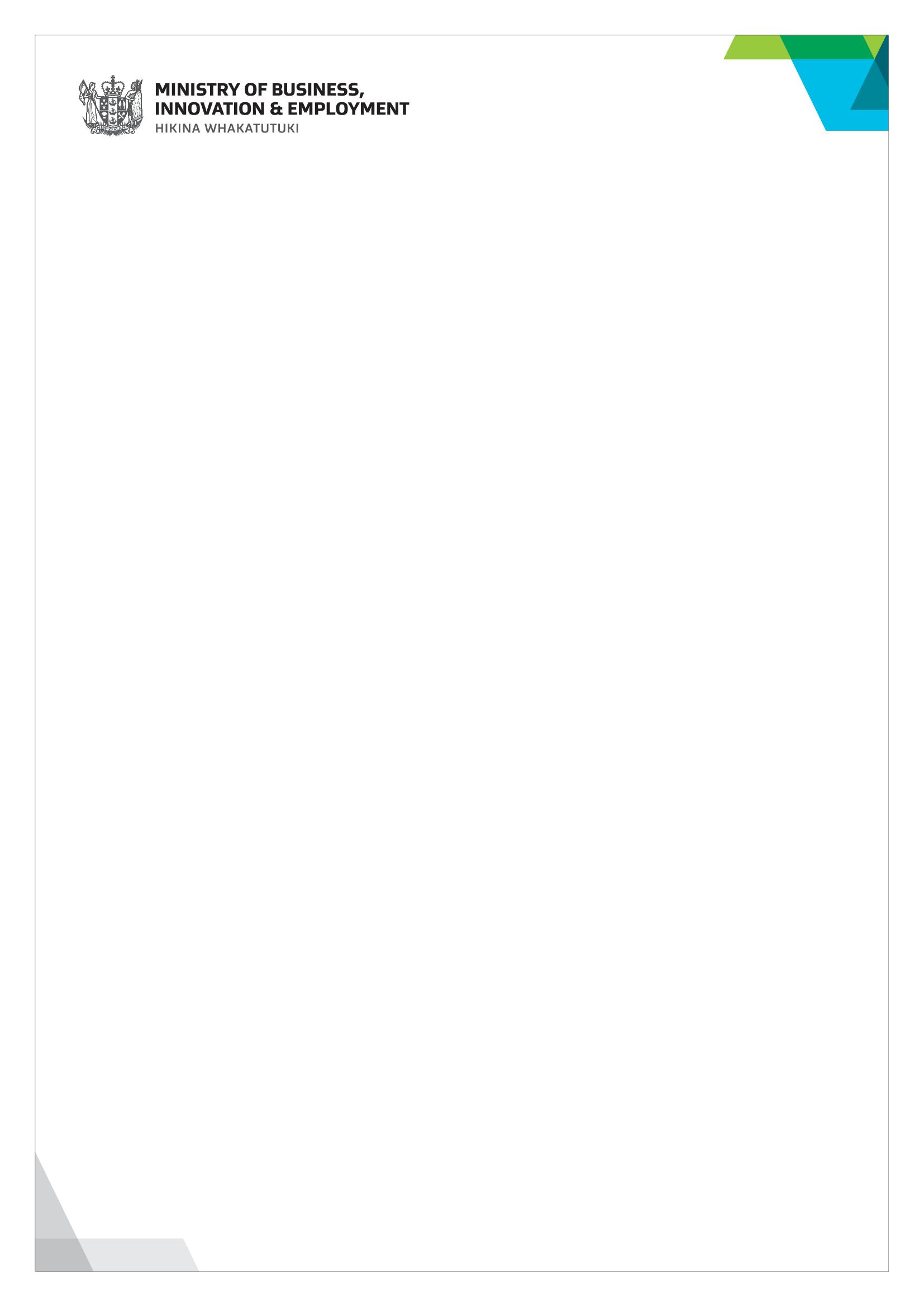 Addressing Conduct and Behaviour Policy
Addressing Conduct and Behaviour Policy
3 This policy is part of a suite of 3 policies to do with conduct which includes the:
Addressing Fraud, Corruption and Dishonesty policy which covers allegations of fraud,
corruption and dishonesty and
ACT
Protected Disclosure Policy which deals with serious wrongdoing as defined by the
Protected Disclosure Act 2000.
Each policy sets out how conduct issues will be managed.
Purpose
The purpose of this policy and the related procedures are to:
outline what managers need to do to address conduct or behavioural issues promptly
and fairly and
ensure all employees know what to expect where conduct or behaviour falls short of
MBIE’s standards as set out in the Code of Conduct.
Scope
INFORMATION
This policy and the related procedures (Addressing Conduct and Behaviour Procedure and
Addressing Fraud, Corruption and Dishonesty Policy) apply to:
all MBIE employees (permanent, fixed term or casual) in New Zealand and offshore
locally engaged staff offshore (although local variations may apply in accordance with
local laws and customs)
people seconded to MBIE from other organisations.
Depending on the nature of the issue, other specific policies may also be relevant and should
OFFICIAL
be referred to. For advice please contact HR.
Escalation Process
The onus is on the relevant Manager within the Business Group concerned to advise their
THE
management chain on a no surprises basis. A Deputy Chief Executive may escalate issues to
the Chief Executive where the issues have organisational wide implications.
Policy statements
1.
Our commitments
UNDER
a.
MBIE’s policies and practices support a high-performing and healthy
workplace culture with high standards of integrity and conduct
b.
MBIE will set clear and reasonable expectations of conduct and behaviour for
all employees, while giving them the flexibility to deliver on their job
requirements
c.
MBIE will address any conduct or behavioural issues as soon as practicable,
and make decisions about any corrective or disciplinary action within
reasonable timeframes
RELEASED
MBIE-MAKO-14903905
Date of issue:
05/01/2015
Page:
Page 1 of 5
Next Review:
05/01/2016
Last review:
05/01/2015
Approved by:
Chief Executive
Date:
05/01/2015
Policy Owner:
General Manager Human Resources
Classification
UNCLASSIFIED
ADDRESSING CONDUCT AND BEHAVIOUR POLICY
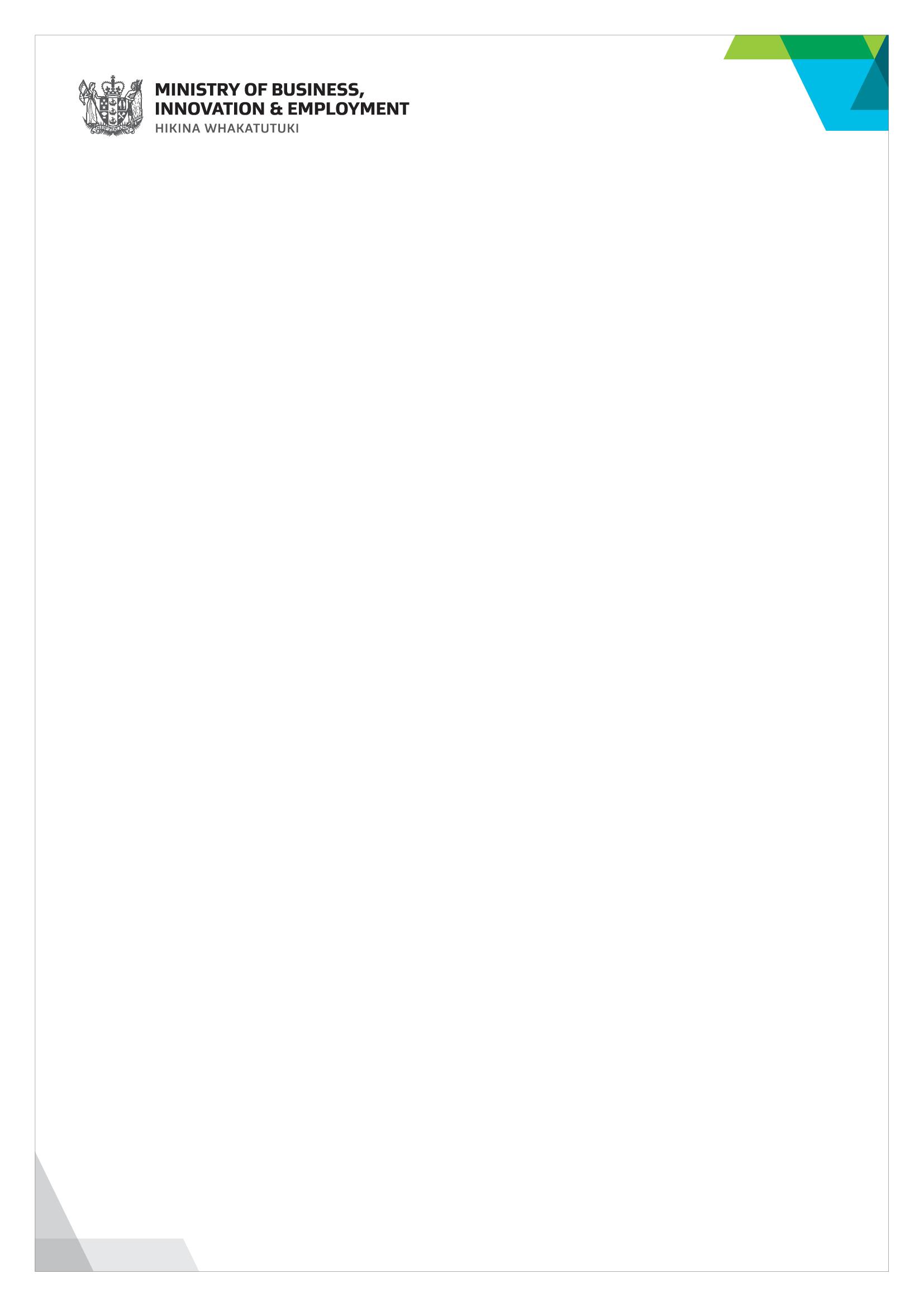
d.
Where any employee breaches MBIE’s trust and confidence or does not meet
behaviour and conduct expectations, they will be held accountable, and may
be subject to disciplinary action.
e.
In undertaking any disciplinary process, MBIE will treat people fairly and aim to
prevent the recurrence of the conduct or behaviour that is causing concern.
ACT
2.
General principles underpinning our approach to conduct and
behaviour issues
In order to act in good faith and ensure a fair process, MBIE will consider the
circumstances surrounding each case carefully, and the following principles and
practices will be applied:
•
the safety of employees, contractors, clients and the public is paramount
•
the relevant manager will seek advice and support from HR
•
the employee will be told about any concerns and allegations, evidence and
INFORMATION
proposals during the process and will have the opportunity to comment in
response
•
allegations of misconduct or serious misconduct will be investigated
appropriately before any disciplinary action is considered
•
the employee will be told about their right to access support, advice or
representation where disciplinary action may result
OFFICIAL
•
the employee will be told about any potential disciplinary action(s) that they
may face
•
the decision-maker will listen to and will carefully consider the employee’s
THE
comments and all other relevant information with an open mind
•
disciplinary action will be approved only by managers with the appropriate
level of delegated authority, following consultation with HR
•
information about the issue, the associated process, and the outcome will be
treated confidentially within the parameters of that process, and will be
shared only as is necessary or in accordance with applicable legislation (e.g.
UNDER
the Privacy Act 1993, the Official Information Act 1982).
3.
Informal corrective action
Where the conduct or behaviour issue is considered minor enough to be dealt with
informally, particularly if it is a first offence, the employee’s manager may opt
to take an informal, corrective approach. This may include recording future
expectations of conduct or behaviour in a file note or letter of expectations.
RELEASED
MBIE-MAKO-14903905
Date of issue:
05/01/2015
Page:
Page 2 of 5
Next Review:
05/01/2016
Last review:
05/01/2015
Approved by:
Chief Executive
Date:
05/01/2015
Policy Owner:
General Manager Human Resources
Classification
UNCLASSIFIED
ADDRESSING CONDUCT AND BEHAVIOUR POLICY
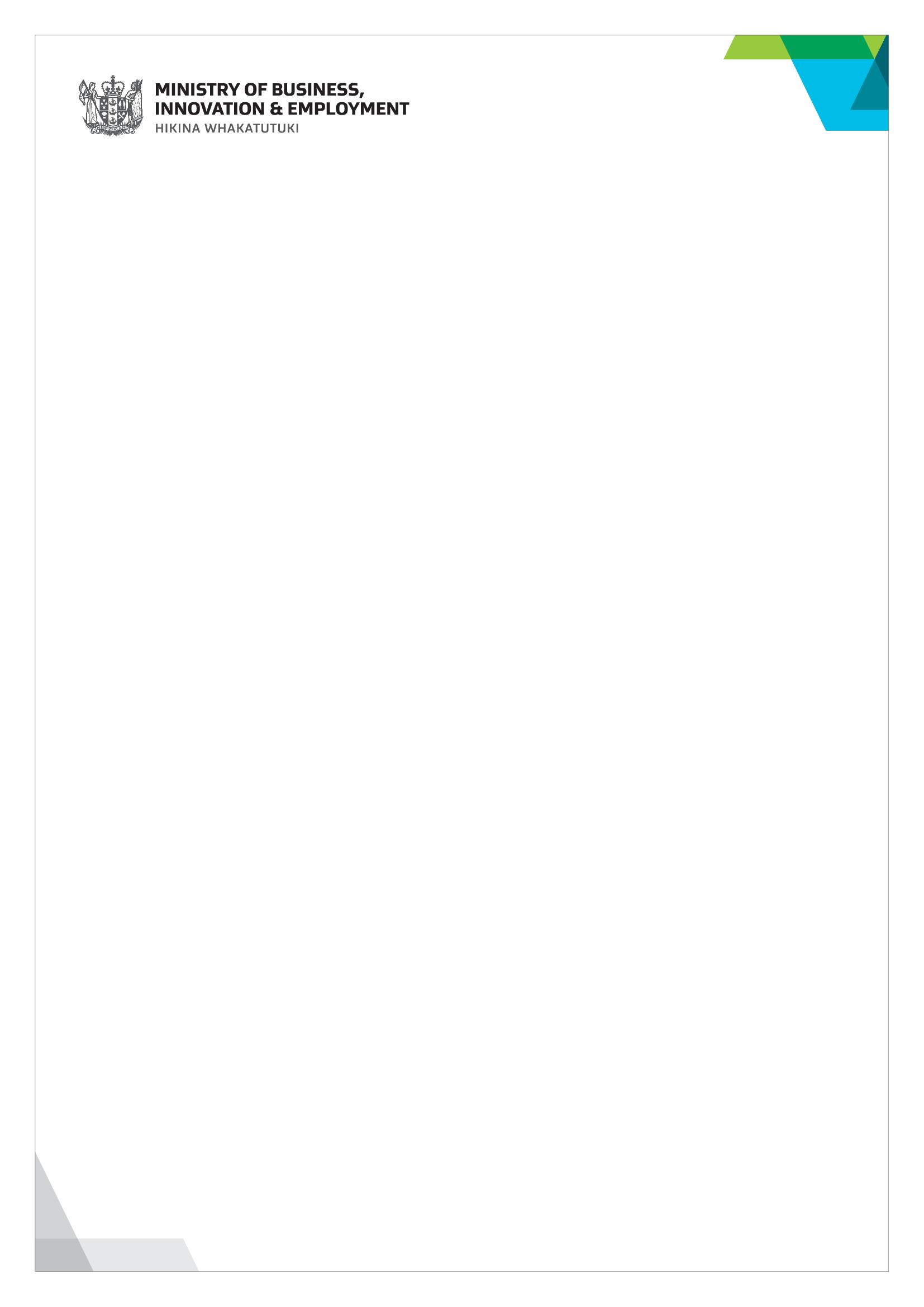 4.
Misconduct and serious misconduct
4.
Misconduct and serious misconduct
a.
concerns or allegations, if substantiated, may lead to formal disciplinary action
against an employee, including misconduct or serious misconduct
b.
misconduct or serious misconduct includes (but not exhaustively) behaviour
that:
ACT
•
breaches or seriously breaches the standards of conduct as described
in MBIE’s Code of Conduct or the State Services Standards of Integrity
and Conduct and/or
•
brings (or could bring) MBIE into disrepute, and/or diminish public
trust or confidence in MBIE
c.
some types of behaviour may still amount to misconduct or serious
misconduct even where they are not specifically noted in the Code of Conduct
or policy documents.
5.
Addressing Fraud Corruption and Dishonesty Policy - Internal Assurance
INFORMATION
Investigations
In some instances (see list below) allegations may be forwarded by any employee to
Internal Assurance to investigate because of their nature, and the significant potential
risks they pose to the Ministry, its staff, systems, reputation, or integrity. These
instances include bribery, corruption, criminal activity, dishonesty (as defined in the
Addressing Fraud Corruption and Dishonesty Policy) and undeclared conflicts of
interest that could adversely impact on the Ministry, and may include significant or
OFFICIAL
complex issues such as:
•
criminal activity
•
dishonest behaviour, acting without authority and acting contrary to the
THE
interests of MBIE
•
fraud
•
possession of objectionable, offensive or pornographic material using MBIE
equipment or premises and
•
unauthorised access, disclosure or use of Ministry information.
UNDER
Internal Assurance will undertake these investigations as they have the expertise and
tools to investigate such allegations. The investigations will be undertaken in
accordance with the Addressing Fraud, Corruption and Dishonesty Policy (link to
policy).
Where an issue does not meet the threshold for investigation by Internal Assurance, it
will be managed by the manager under the requirements of this policy and the
Addressing Conduct and Behaviour Procedure. The Internal Assurance team determine
the threshold for their involvement in consultation with the relevant manager.
RELEASED
MBIE-MAKO-14903905
Date of issue:
05/01/2015
Page:
Page 3 of 5
Next Review:
05/01/2016
Last review:
05/01/2015
Approved by:
Chief Executive
Date:
05/01/2015
Policy Owner:
General Manager Human Resources
Classification
UNCLASSIFIED
ADDRESSING CONDUCT AND BEHAVIOUR POLICY
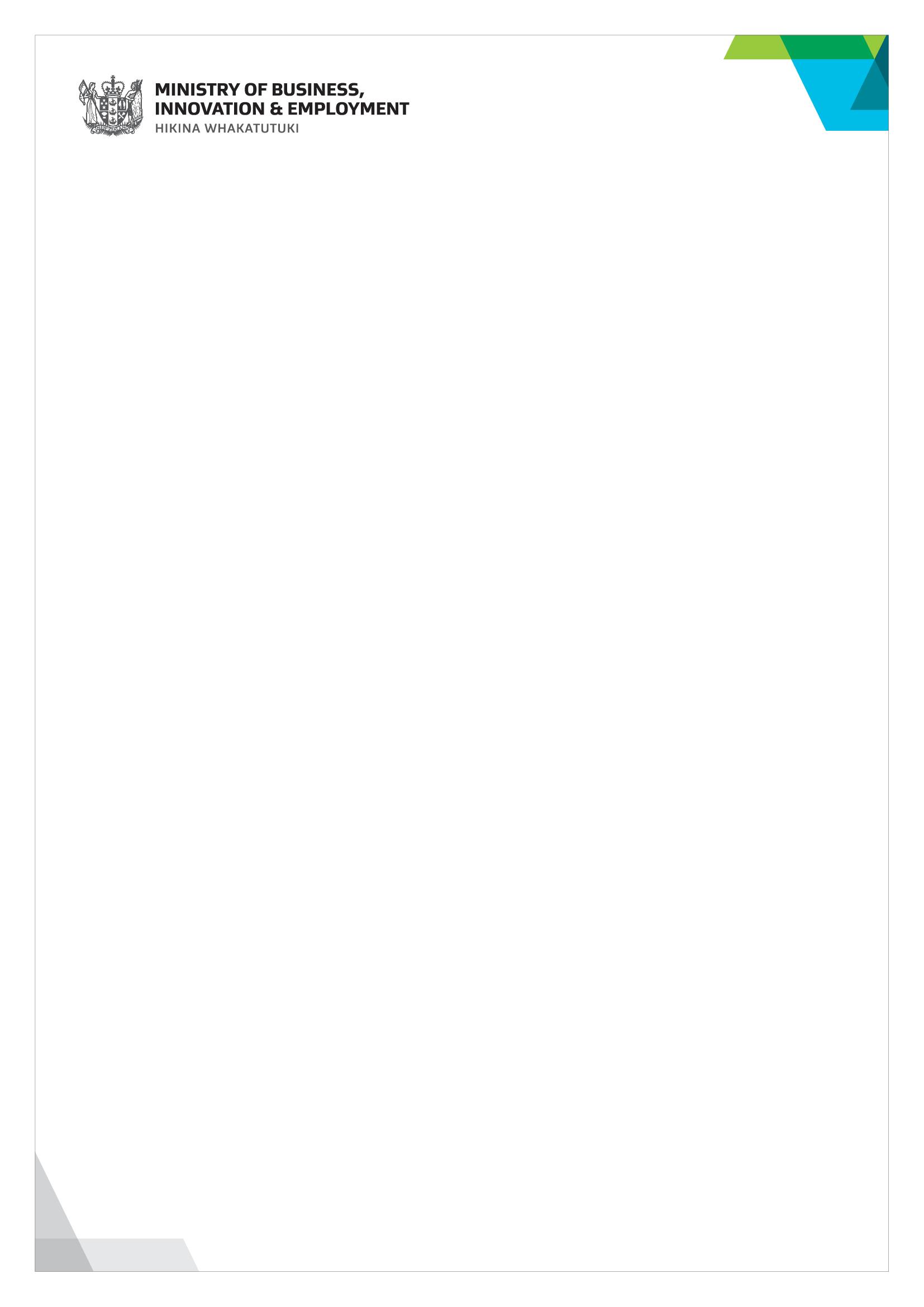 6.
Types of formal disciplinary action
6.
Types of formal disciplinary action
a.
the main types of formal disciplinary action that can be taken against an
employee are warnings and dismissal.
b.
the type of warning issued will depend on the nature and gravity of the
misconduct, as well as any information provided by the employee, and their
ACT
employment history with MBIE.
c.
the decision maker, in consultation with HR, will decide whether it is
appropriate to issue a warning, or a final warning. The decision maker must
ensure they follow MBIE’s delegations manual, in particular by ensuring any
disciplinary sanction is authorised by a manager with the appropriate
delegations.
d.
an employee may be issued with a final warning for a further breach or in the
first instance for more serious incidents of misconduct.
e.
dismissal may be considered where earlier warning(s) have been issued, or for
serious misconduct
INFORMATION
f.
dismissal is usually on notice but summary dismissal giving no notice may be
actioned in some cases of serious misconduct. Notice requirements will be
specified in the applicable employment agreement
g.
where notice is required, at MBIE’s discretion payment can be made in lieu of
the employee working through the notice period.
h.
the employee will be given the opportunity to comment on the proposed
OFFICIAL
outcome before a final decision is made. This opportunity to comment can be
provided to the employee at a meeting, or requested from the employee in
writing.
THE
The decision maker is able to revert to informal corrective action at any time during or
following a formal process if they believe this is appropriate based on the information
considered.
Related procedures
Addressing Conduct and Behaviour Procedure
UNDER
Addressing Fraud, Corruption and Dishonesty Policy
Relevant legislation
Employment Relations Act 2000
State Sector Act 1988
Protected Disclosures Act 2000
Human Rights Act 1993
Privacy Act 1993
Official Information Act 1982
RELEASED
MBIE-MAKO-14903905
Date of issue:
05/01/2015
Page:
Page 4 of 5
Next Review:
05/01/2016
Last review:
05/01/2015
Approved by:
Chief Executive
Date:
05/01/2015
Policy Owner:
General Manager Human Resources
Classification
UNCLASSIFIED
ADDRESSING CONDUCT AND BEHAVIOUR POLICY
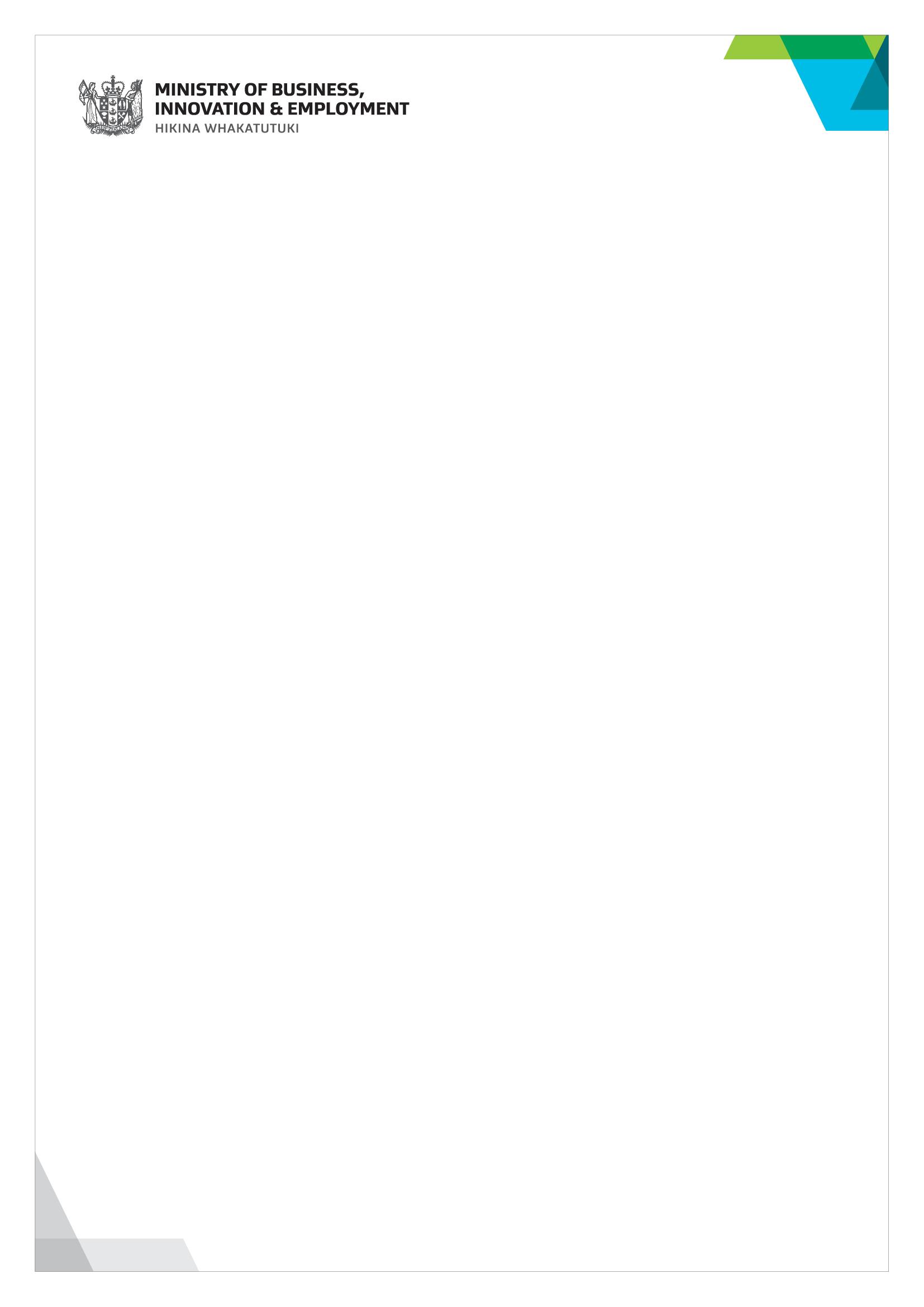 Other related documents
Other related documents
Code of Conduct
Standards of Integrity and Conduct (State Services Code of Conduct)
ACT
Delegations
Relevant employment agreements
INFORMATION
OFFICIAL
THE
UNDER
RELEASED
MBIE-MAKO-14903905
Date of issue:
05/01/2015
Page:
Page 5 of 5
Next Review:
05/01/2016
Last review:
05/01/2015
Approved by:
Chief Executive
Date:
05/01/2015
Policy Owner:
General Manager Human Resources
Classification
UNCLASSIFIED
ADDRESSING CONDUCT AND BEHAVIOUR POLICY
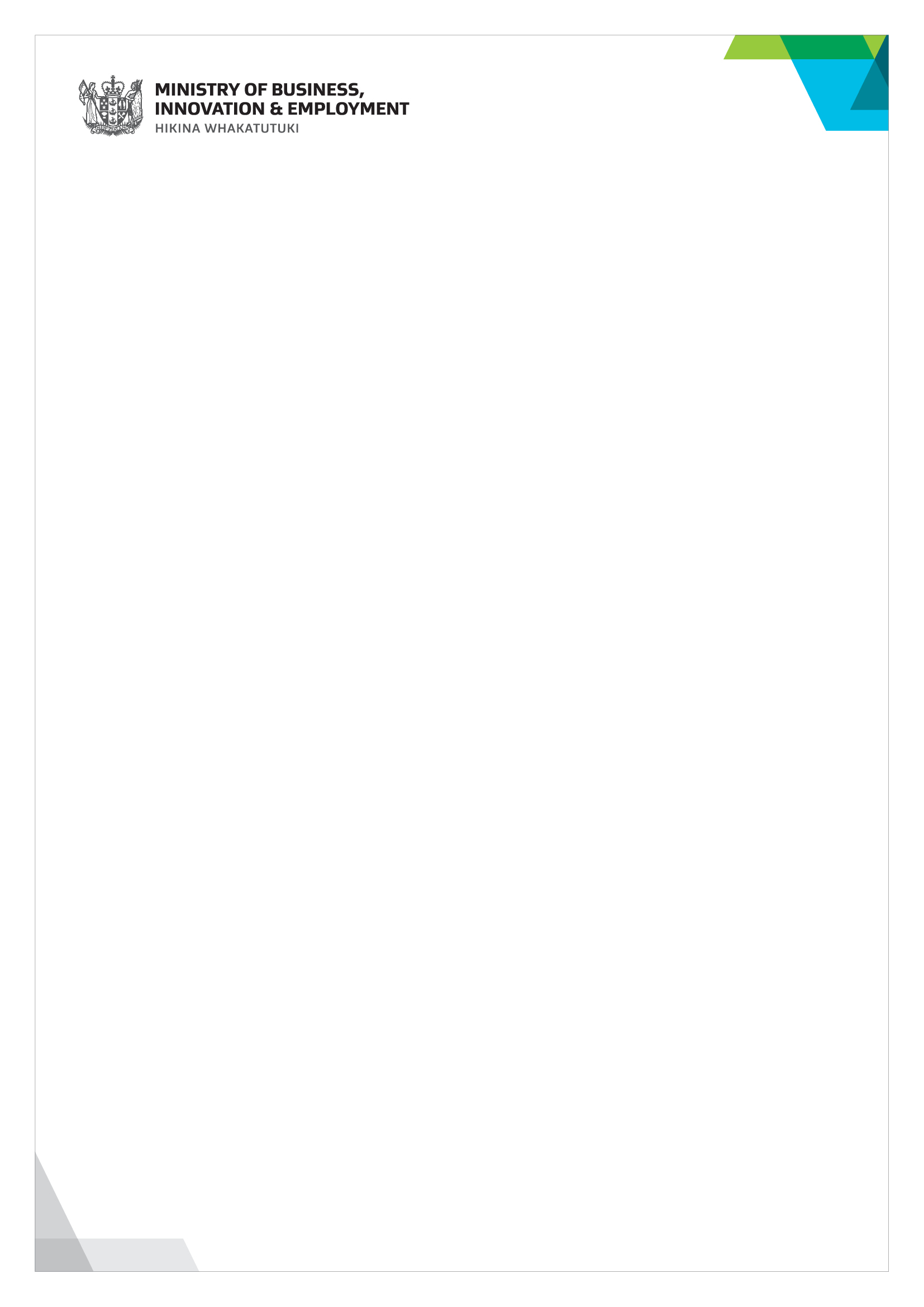
4
Addressing Conduct and Behaviour Procedure
Purpose
This document supports th
e Addressing Conduct and Behaviour Policy by describing the steps
that managers should fol ow when considering and addressing concerns about their team
ACT
members’ conduct and behaviour. It is also intended to help employees understand what to
expect in the event of an employment investigation and/or disciplinary process.
Scope
This procedure applies to al MBIE employees, and covers addressing any concerns, al egation
or complaint about employee behaviour including, but not limited to, possible cases of
misconduct or serious misconduct that may lead to disciplinary action.
Al egations of dishonesty, including fraud, corruption and dishonest behaviour may be
considered under the Addressing Fraud Corruption and Dishonesty Policy, and should be
referred to the Internal Assurance Assessment Team.
INFORMATION
Concerns about poor performance are covered by the Addressing Poor Performance Policy and
Procedure. Managers who are unclear about whether a concern is a behaviour/conduct issue
or a performance issue should talk to HR.
Procedure
Addressing Fraud Corruption and Dishonesty Policy - Internal Assurance
Investigations
OFFICIAL
In some serious instances (see list below), al egations must be forwarded by any employee to
Internal Assurance to investigate, because of the nature of the al egations, and the significant
potential risks posed to the Ministry, its staff, systems, reputation or integrity. These instances
include bribery, corruption, criminal activity, dishonesty (as defined in the Addressing Fraud
THE
Corruption and Dishonesty Policy) and undeclared conflicts of interest that could adversely
impact on the Ministry and may include significant or complex issues such as:
•
criminal activity
•
dishonest behaviour, acting without authority and acting contrary to the
interests of MBIE
UNDER
•
fraud
•
possession of objectionable, offensive or pornographic material using MBIE
equipment or premises
•
unauthorised access, disclosure or use of Ministry information.
MBIE-MAKO-19814803
MBIE-MAKO-14903905
Date of issue:
05/01/2015
Page:
Page 1 of 9
RELEASED
Next Review:
05/01/2016
Last review:
05/01/2015
Approved by:
Chief Executive
Date:
05/01/2015
Policy Owner:
General Manager People and Capability
Classification
UNCLASSIFIED
ADDRESSING CONDUCT AND BEHAVIOUR PROCEDURE
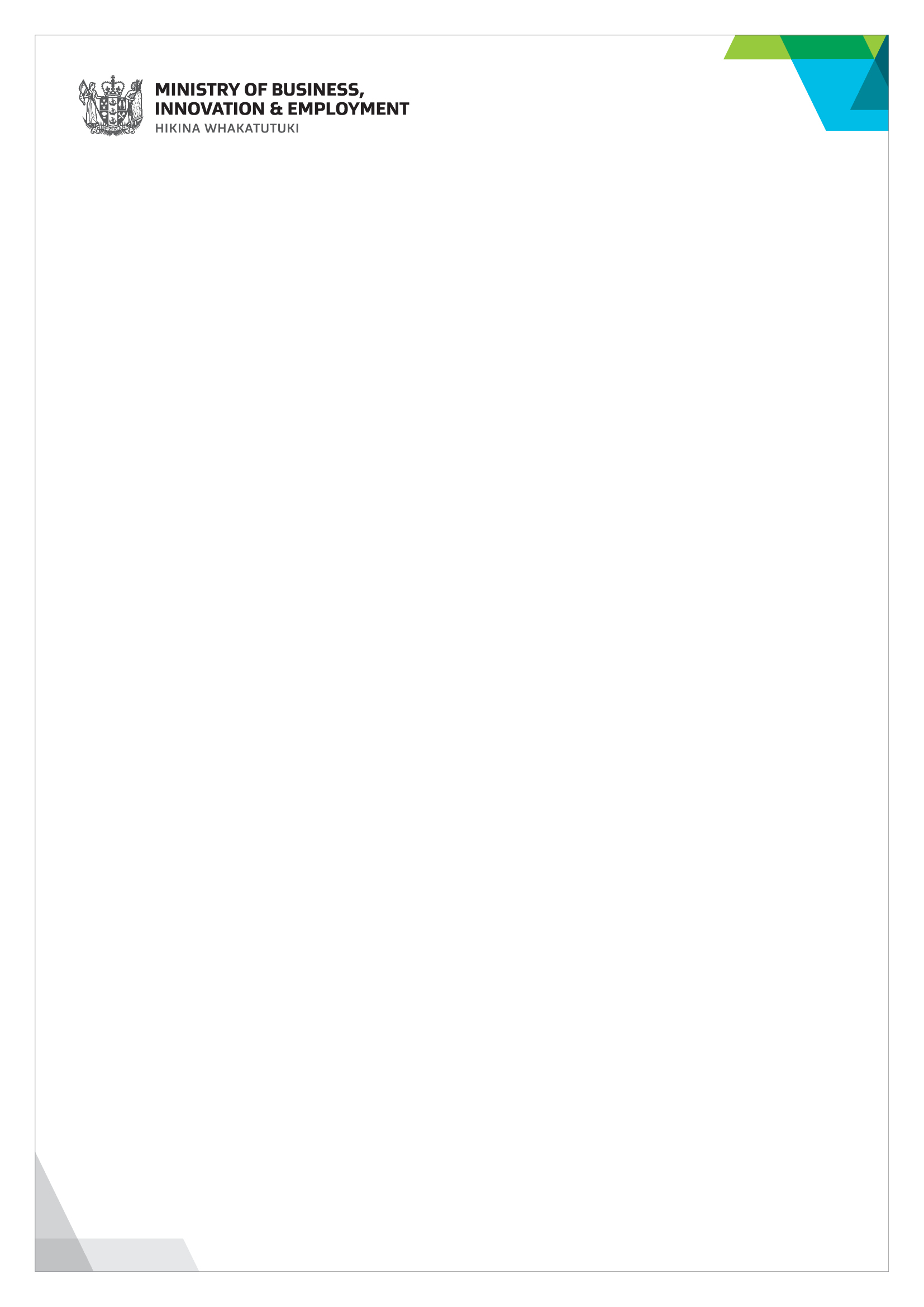 Other allegations
Other allegations
In al other instances of al egations the procedure set out below wil be fol owed.
In order to act in good faith and ensure a fair process, MBIE wil consider the circumstances
surrounding each case carefully, and provide the employee(s) involved with a full opportunity
to respond to the concerns or al egations and have access to appropriate support, advice or
ACT
representation.
The fol owing represents a typical process for considering an employee conduct or behaviour
al egation, but some variation may be needed to suit the particular situation.
1. When a conduct or behaviour issue first arises
a) When a manager becomes aware of a concern, complaint or al egation of potential y
inappropriate behaviour or conduct by an employee, they should consider the
fol owing context and talk to HR:
• whether the conduct or behaviour issue is minor enough for an informal coaching
approach to be taken
INFORMATION
• if there is sufficient information to decide whether to proceed with any further
steps
• where there are appropriate first steps to be taken, such as making brief enquiries
to clarify the basis for the al egations (if this is needed)
• whether the information about the behaviour or conduct issues is such that there
is already a sound basis for commencing an employment investigation
•
OFFICIAL
whether the al eged behaviour would (if substantiated) amount to misconduct or
serious misconduct
• the potential outcomes that may be considered if (after investigation) it is
established that the al eged behaviour has occurred
THE
• who the decision-maker should be (including delegation levels) and
• whether suspension should be considered.
b) Having considered the above context, the manager may need to first establish some
key facts to ensure that there is sufficient information to proceed. This is to ensure
that the issue is not simp
UNDER ly a misunderstanding or something that can be resolved
informal y. This may include checking relevant records or documentation or having an
informal discussion with the employee (if appropriate).
c) If it becomes apparent during any initial discussion with an employee that there is a
case to answer or that a more formal process needs to occur, the manager wil need to
bring the discussion to an end and set up a separate specific meeting with the
MBIE-MAKO-19814803
MBIE-MAKO-14903905
Date of issue:
05/01/2015
Page:
Page 2 of 9
RELEASED
Next Review:
05/01/2016
Last review:
05/01/2015
Approved by:
Chief Executive
Date:
05/01/2015
Policy Owner:
General Manager People and Capability
Classification
UNCLASSIFIED
ADDRESSING CONDUCT AND BEHAVIOUR PROCEDURE
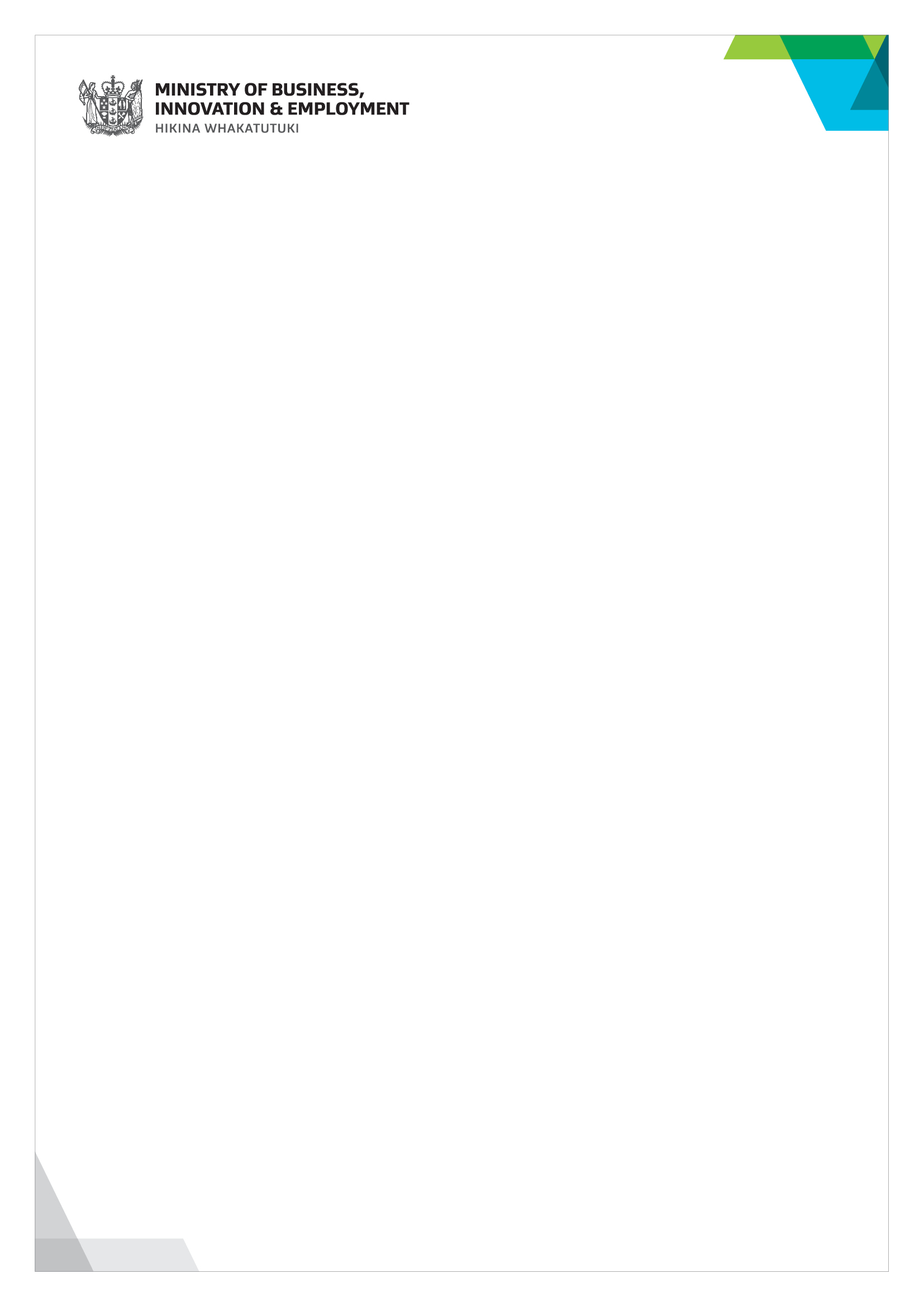
employee to formal y put the matter to them for a response. This al ows for a fair
process and ensures that the employee has time to access support, advice or
representation.
2. Notifying the employee and seeking an initial response
a) If the manager believes there is sufficient information to begin a formal process, they
ACT
should contact HR and their manager, and then write to the employee to:
• set out the nature of the al egation, concern or complaint
• explain why this issue is of concern
• include the relevant information currently available
• refer to the relevant parts of the Code of Conduct or policy or Act that may
have been breached
• explain the nature of any investigation and when that wil commence
• advise the employee of the possible consequences (disciplinary outcomes)
that they may face, particularly where this might include dismissal, and
INFORMATION
• inform the employee if suspension is being considered, and advise that they
first have an opportunity to comment on whether suspension is necessary and
• advise the employee that he/she is entitled to seek representation or advice.
b) The manager may wish to invite the employee to provide a response at this stage, or
they may prefer to commence an investigation, with or without an initial response
being sought from the employee, depending on the nature of the concerns and
OFFICIAL
evidence supporting them. A response from the employee could be provided either by
the manager offering to meet with the employee (in which case a time and place can
be suggested in the letter), or by the employee being asked to respond in writing
within a specific timeframe. The employee should be advised that they are entitled to
THE
bring a support person to any meeting.
3. Suspension
a) In serious cases, suspending the employee may be the
first step in the investigation
process, or may occur in the course of the process, as matters become clearer. Advice
from HR must always be sought before suspending an employee.
UNDER
b) Suspending an employee may be considered where the al eged conduct or behaviour
(if established) could amount to serious misconduct and where:
• the nature of the issue is such that there is a risk to MBIE (e.g. reputation or
credibility) should the employee continue to work while an investigation is
underway
MBIE-MAKO-19814803
MBIE-MAKO-14903905
Date of issue:
05/01/2015
Page:
Page 3 of 9
RELEASED
Next Review:
05/01/2016
Last review:
05/01/2015
Approved by:
Chief Executive
Date:
05/01/2015
Policy Owner:
General Manager People and Capability
Classification
UNCLASSIFIED
ADDRESSING CONDUCT AND BEHAVIOUR PROCEDURE
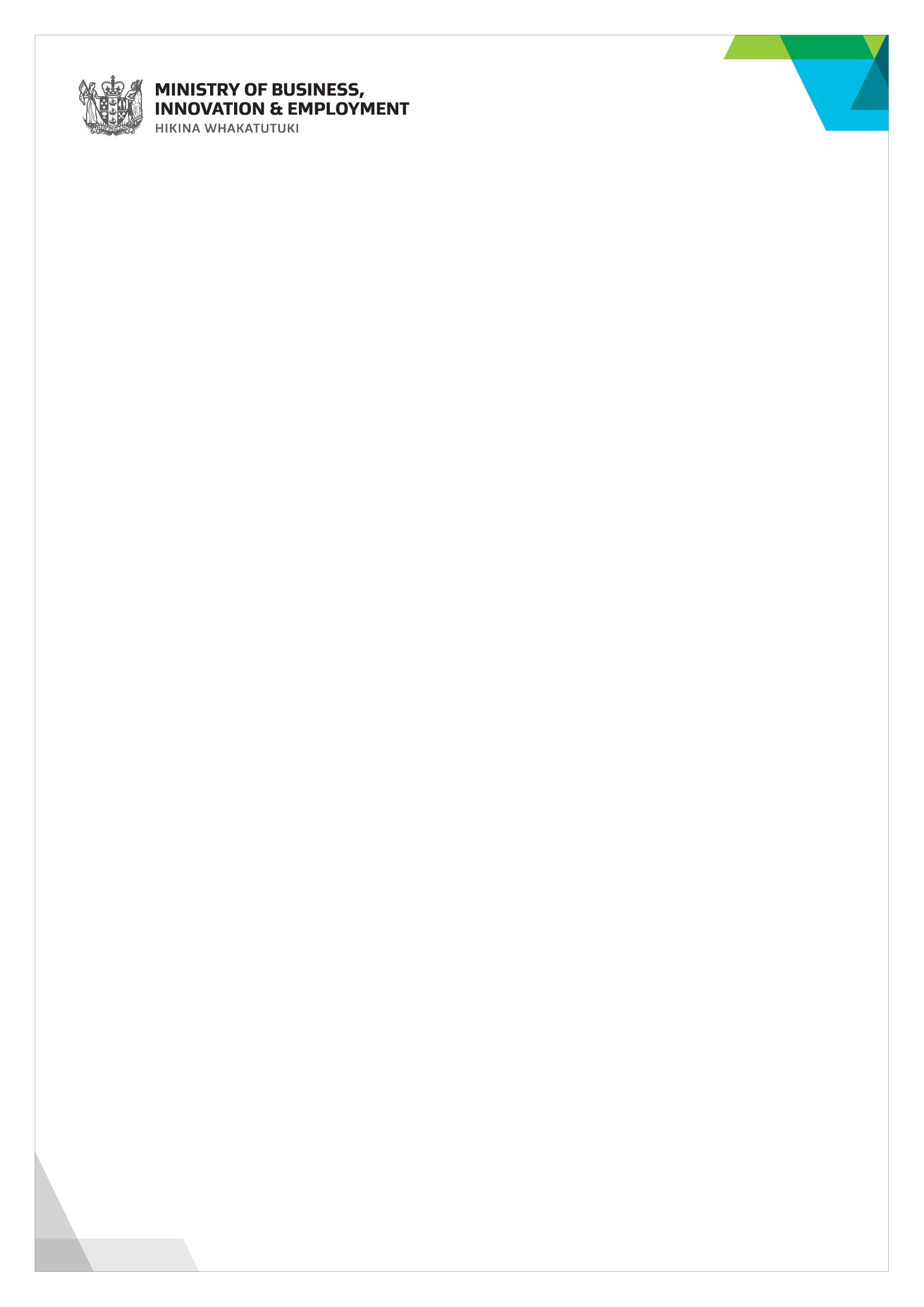
• there is a need to separate employees, or a potential safety risk to other
employees, clients, or the employee involved
• it is not appropriate for some reason for the employee to continue to perform
their duties or remain in the workplace and/or
• the employee’s presence at work could compromise the integrity of the
ACT
investigation.
c) Suspension is usual y for the duration of the process, ending when the outcome has
been determined. An employee who is suspended usual y remains on pay.
d) The key steps in a suspension process are:
• the manager obtains advice from HR and ensures that a manager with delegated
authority to suspend is directly involved
• the decision maker advises the employee that suspension is being considered and
why
• the employee is advised that they have the opportunity to comment on whether
or not suspension is appropriate and that they can seek advice, support or
INFORMATION
representation
• a meeting is arranged as soon as possible between the employee (and their
support person, if any), and the manager/decision-maker, to discuss the
suspension proposal and any possible alternatives (such as placing specific
conditions on the employee during the investigation)
• the employee’s response is considered by the decision-maker and
OFFICIAL
• a decision is made whether or not to suspend the employee and is fol owed up in
writing.
e) When initial y proposing suspension, the manager can place the employee on a short
THE
period of paid special leave (e.g. for around 24 hours) by agreement. This gives the
employee an opportunity to access support or representation before responding to
the suspension proposal. It may also be useful where a ‘cooling off’ period is needed,
or in cases where the manager is concerned about the employee remaining at work in
the meantime.
f)
UNDER
If a decision is made to suspend the employee, he/she wil be asked to hand over al
work-related property and access cards and remain away from work for the duration
of the suspension. If the employee has remote access to IT systems, this may need to
be disabled while they are suspended.
g) Any decision to suspend needs to be fol owed up in writing, including the potential
timeframe of the suspension.
MBIE-MAKO-19814803
MBIE-MAKO-14903905
Date of issue:
05/01/2015
Page:
Page 4 of 9
RELEASED
Next Review:
05/01/2016
Last review:
05/01/2015
Approved by:
Chief Executive
Date:
05/01/2015
Policy Owner:
General Manager People and Capability
Classification
UNCLASSIFIED
ADDRESSING CONDUCT AND BEHAVIOUR PROCEDURE
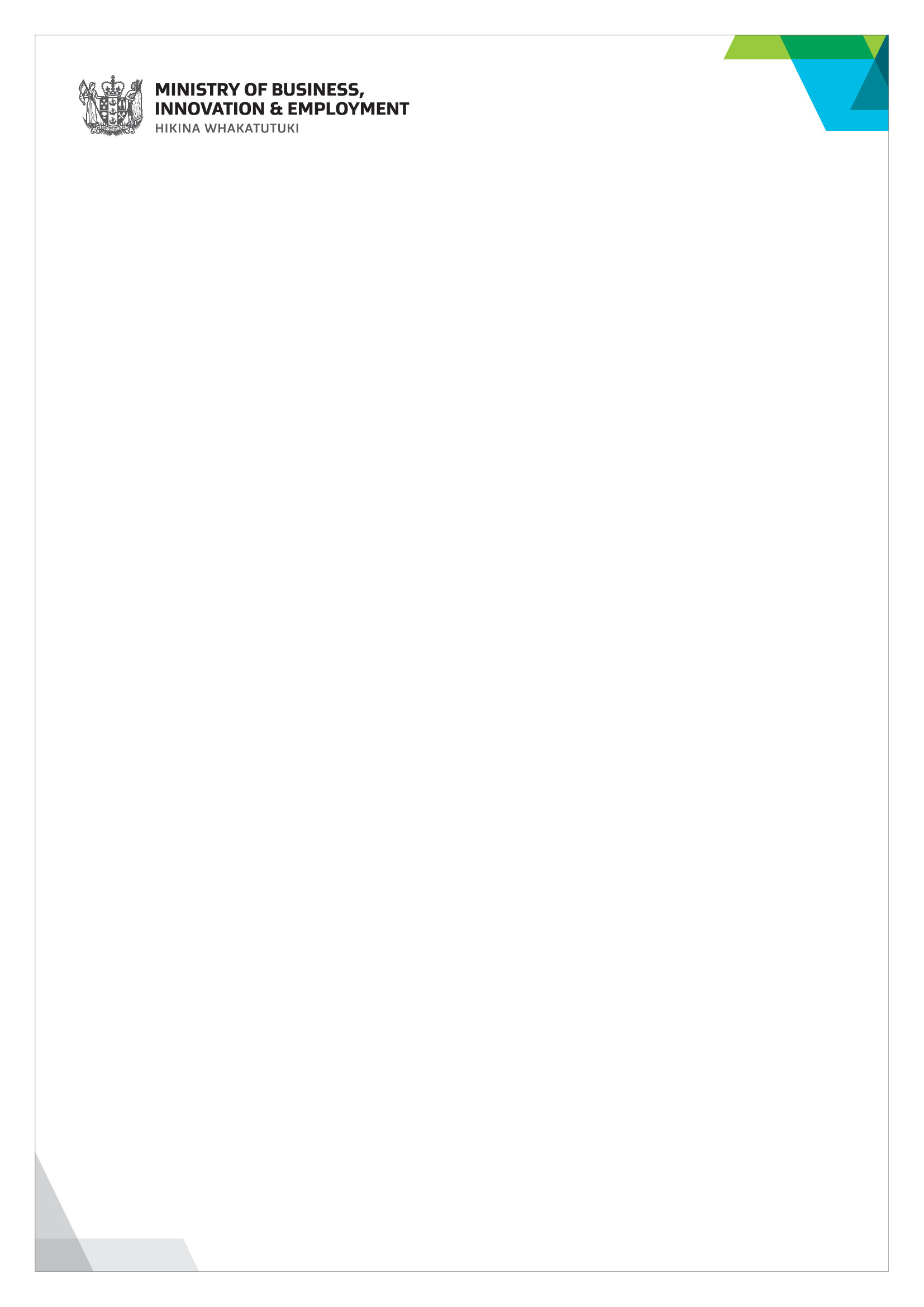
h) If the decision is made not to suspend the employee, the decision-maker may specify
certain conditions to be met while the employee remains in the workplace during the
investigation.
4. Investigation
a) The manager wil need to decide whether an investigation into the al eged conduct or
ACT
behaviour is needed. This can be determined with reference to the information
already to hand and any initial response that has been provided by the employee.
b) An investigation into the issue normal y takes place after the employee is notified.
However, sometimes some inquiries need to be made before the employee is notified,
such as where the employee(s) involved have not been identified, or where the
information received is highly sensitive. Further investigations may also be needed
after the manager hears the employee’s initial response.
c) A separate investigator may be assigned to investigate the al egation, or the decision
maker may make reasonable investigations themselves, as appropriate to the nature
and complexity of the al egation. A separate investigator could be the employee’s
manager, another manager, or someone else with the necessary skil s and experience
INFORMATION
to investigate the particular issue. An investigation wil involve the available and
relevant information being gathered, tested and considered.
d) The scope of an investigation varies according to the nature and complexity of the
situation but it typical y involves:
• interviewing the complainant (if any) and/or relevant witnesses
• reviewing any relevant documentation or other evidence
OFFICIAL
• providing al material and interview notes to the employee for him/her to review
• interviewing the employee concerned or giving them an opportunity to respond to
the material gathered and interview notes taken to date and
THE
• re-interviewing individuals where new information emerges, or conflicts in the
evidence need to be further explored.
e) Once the investigation is complete, a report or a letter wil be prepared that
summarises the information gathered and sets out the findings of the investigation.
UNDER
f) The decision-maker then gives the investigation report/letter to the employee and
seeks any submissions from the employee in response to those findings, noting any
potential disciplinary outcomes that might result. This is so the employee is fairly
informed of potential consequences at this point, ahead of making any submissions to
the decision-maker. This letter should invite the employee to attend a meeting with
the decision-maker (see step 5 below).
MBIE-MAKO-19814803
MBIE-MAKO-14903905
Date of issue:
05/01/2015
Page:
Page 5 of 9
RELEASED
Next Review:
05/01/2016
Last review:
05/01/2015
Approved by:
Chief Executive
Date:
05/01/2015
Policy Owner:
General Manager People and Capability
Classification
UNCLASSIFIED
ADDRESSING CONDUCT AND BEHAVIOUR PROCEDURE
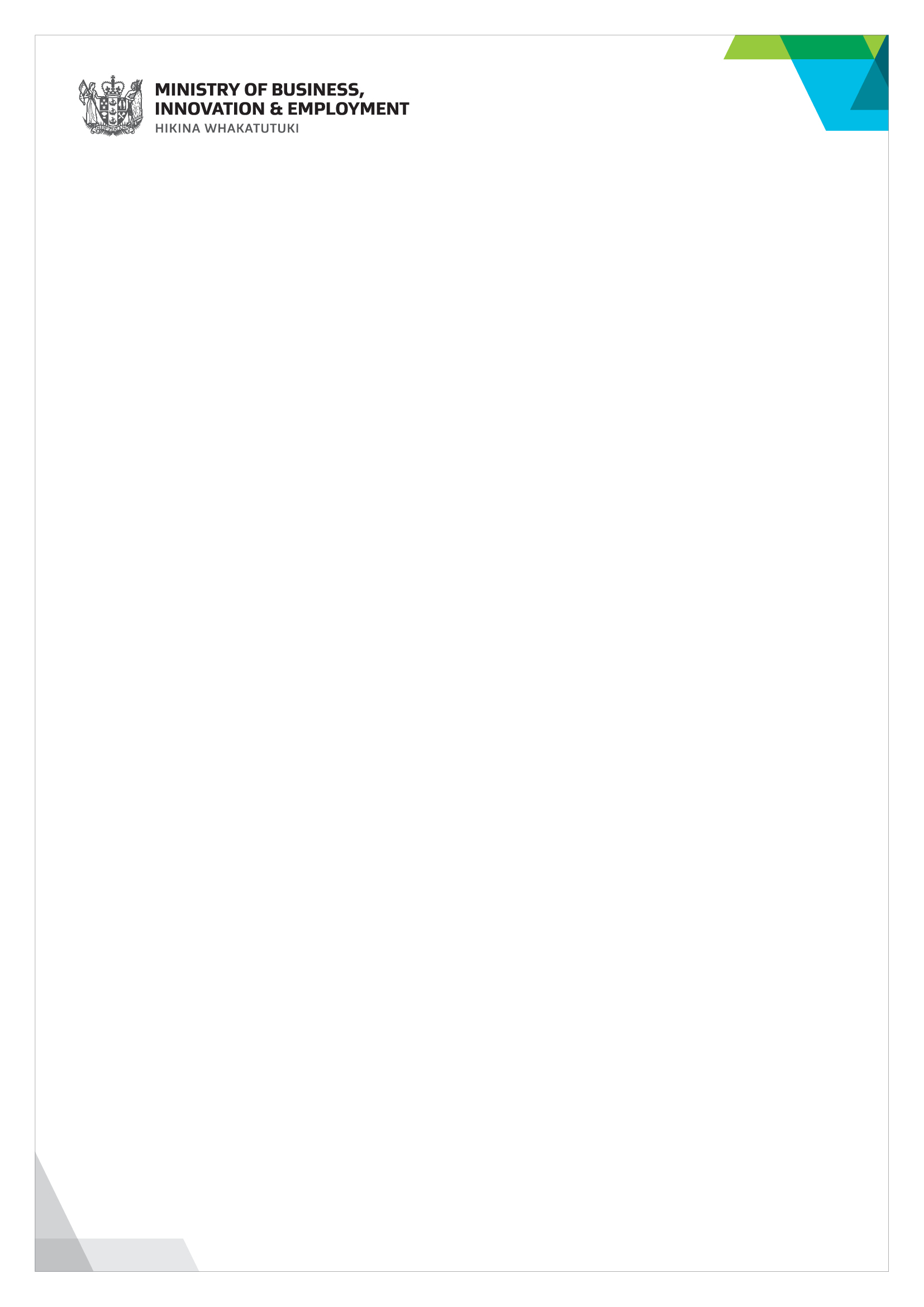
g) If the investigation suggests possible criminal activity, the Internal Investigator,
Internal Assurance wil seek advice on whether, and if so when, the matter should be
referred to the Police. MBIE wil usual y complete its own employment investigation in
the first instance.
h) As noted above, suspension of the employee may also need to be considered once the
investigation findings are made, as wel as before the investigation begins.
ACT
5. Meeting between the decision-maker and the employee
a) Once an investigation is concluded, or at the outset of the process if a separate
investigation is not considered necessary, it is important for the decision-maker to
review al of the material to hand and to meet with the employee in order to give
them an opportunity to respond directly before any decisions are made.
Alternatively, if it is not practical to arrange a meeting, or if the employee declines to
attend, the employee should be given a timeframe in which to consider the material
that has been gathered and to provide a written response.
b) The employee may bring a support person or representative to any meeting, including
INFORMATION
this one. The decision-maker can also have an Advisor with them, such as an HR
Advisor, or another manager or Advisor.
6. Making the next decisions
a) Once the decision-maker has al the relevant information to hand, including the
employee’s response, they wil consider whether or not the employee has committed
misconduct or serious misconduct.
b)
OFFICIAL
If the decision-maker decides that misconduct or serious misconduct has occurred, the
next step is to decide what action to take, if any, in response to this decision.
c) When determining the type of disciplinary action that is appropriate as a response to
misconduct or serious misconduct, any mitigating factors should be considered, such
THE
as the employee’s record of service and conduct or any personal factors that might be
relevant. In order to obtain this information, it can be helpful at this point to advise
the employee of the proposed disciplinary sanction and seek any responses to that
proposal.
d) Where dismissal or any disciplinary sanction is proposed the employee wil be given
UNDER
the opportunity to comment on that proposal before a final decision is made. The aim
of any disciplinary action is to prevent a recurrence of the inappropriate behaviour or
misconduct, noting that:
• if the misconduct is so serious that it amounts to serious misconduct dismissal
without notice is a valid option
MBIE-MAKO-19814803
MBIE-MAKO-14903905
Date of issue:
05/01/2015
Page:
Page 6 of 9
RELEASED
Next Review:
05/01/2016
Last review:
05/01/2015
Approved by:
Chief Executive
Date:
05/01/2015
Policy Owner:
General Manager People and Capability
Classification
UNCLASSIFIED
ADDRESSING CONDUCT AND BEHAVIOUR PROCEDURE
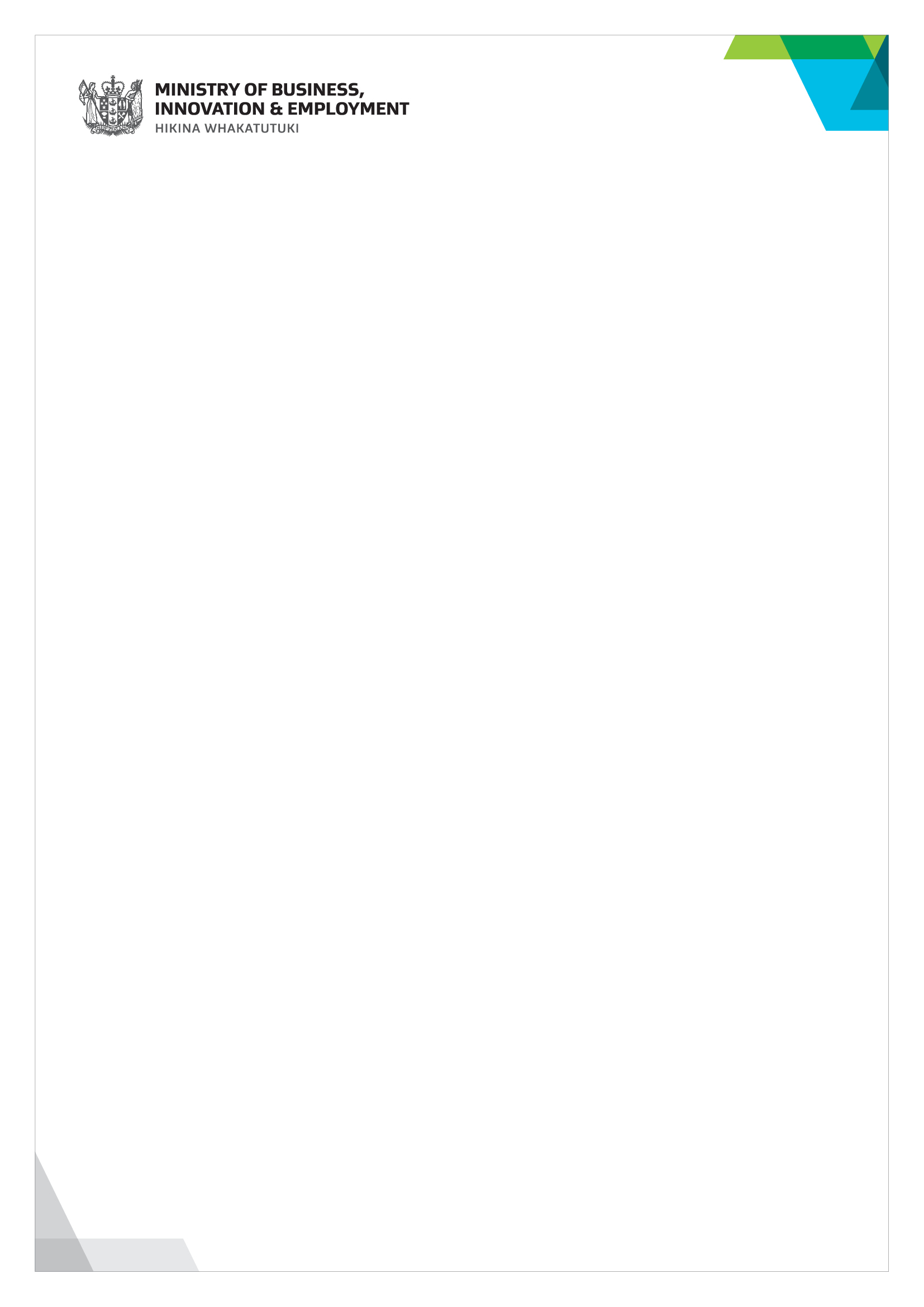
• for other types of misconduct, a warning or final warning may be appropriate
any previous warning in place wil also be taken into account, and if the staff member
is already on a warning, dismissal on notice may be a valid option fol owing a further
incident of misconduct.
7. Delivering the decision
ACT
The decision on the disciplinary outcome wil be delivered to the employee, where
practicable, in person by the decision maker and fol owed up in a written letter to the
employee.
8. Warnings for misconduct
a) A warning should outline the conduct of an issue and clearly advise the employee that
any further conduct or behaviour issues that occur could lead to further and more
serious disciplinary action.
b) Warnings are confirmed in writing (in a letter) by the decision-maker and wil general y
include:
INFORMATION
• a summary of the issue and why it is of concern
• reference to the Code of Conduct or policy breach
• reference to any previous warning in place
• a summary of the employee’s response and the decision-maker’s view of this
response
• the conduct or behaviour required of the employee (including the behaviour the
OFFICIAL
manager does not want to see) in the future
• a statement that this is a letter of warning and what kind of warning it is (e.g. a
written warning / a final warning)
THE
• advice that any further conduct or behaviour issues may put the employee’s
employment in jeopardy and wil likely result in further disciplinary action (such as
a final warning or dismissal, as appropriate)
• a note that the employee may wish to seek support through the Employee
Assistance Programme.
UNDER
c) The decision-maker should also decide upon an appropriate expiry date for any
warning, and include this in the letter.
9. Dismissal
MBIE-MAKO-19814803
MBIE-MAKO-14903905
Date of issue:
05/01/2015
Page:
Page 7 of 9
RELEASED
Next Review:
05/01/2016
Last review:
05/01/2015
Approved by:
Chief Executive
Date:
05/01/2015
Policy Owner:
General Manager People and Capability
Classification
UNCLASSIFIED
ADDRESSING CONDUCT AND BEHAVIOUR PROCEDURE
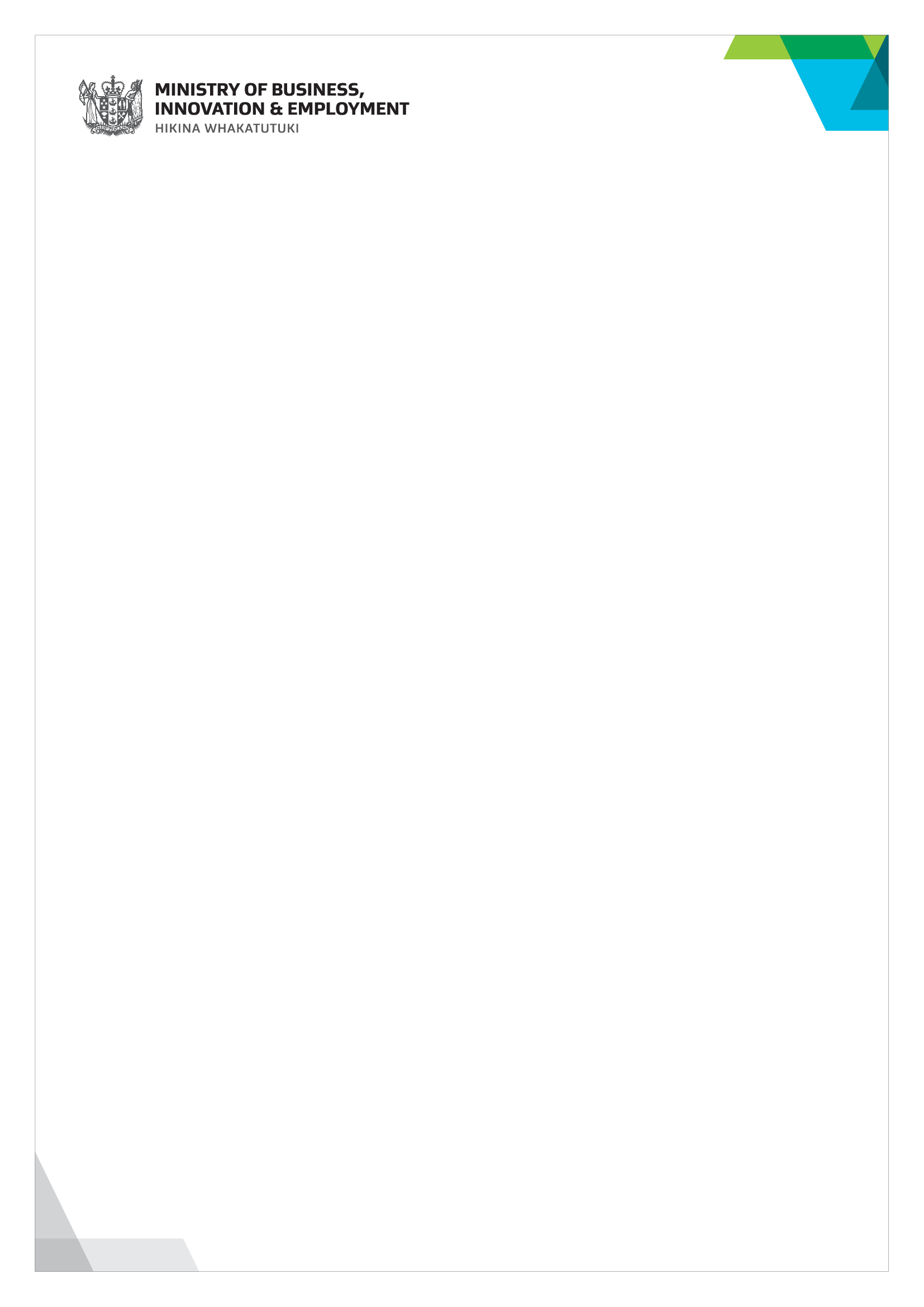
a) Any decision to dismiss an employee must be authorised by a manager with the
delegated authority to do so. The manager should check MBIE’s HR Delegations and
consult with the General Manager, People and Capability.
b) Notice is paid according to the terms of the employment agreement. This would
usual y provide for notice in the case of any dismissal that fol ows a warning process.
Payment can be made in lieu of notice. In cases of serious misconduct, notice is not
ACT
required and any leave entitlements are paid as soon as practicable. Payrol wil
provide the employee with separate details of the final pay.
c) The manager is responsible for ensuring that the employee leaves the workplace (if
they are not already suspended) and returns any work-related property including
access cards. The manager should also liaise with IT to ensure any remote access to
computer systems is disabled immediately.
d) In consultation with HR, the manager may then advise other managers and employees
of the decision as appropriate.
10. Keeping records
INFORMATION
a) The outcome of any disciplinary process as it applies to an employee is kept on the
employee’s personal file, along with any correspondence during the process.
b) Records of the investigation, including interview notes, are retained on a confidential
file held securely by the HR Team.
OFFICIAL
THE
UNDER
MBIE-MAKO-19814803
MBIE-MAKO-14903905
Date of issue:
05/01/2015
Page:
Page 8 of 9
RELEASED
Next Review:
05/01/2016
Last review:
05/01/2015
Approved by:
Chief Executive
Date:
05/01/2015
Policy Owner:
General Manager People and Capability
Classification
UNCLASSIFIED
ADDRESSING CONDUCT AND BEHAVIOUR PROCEDURE
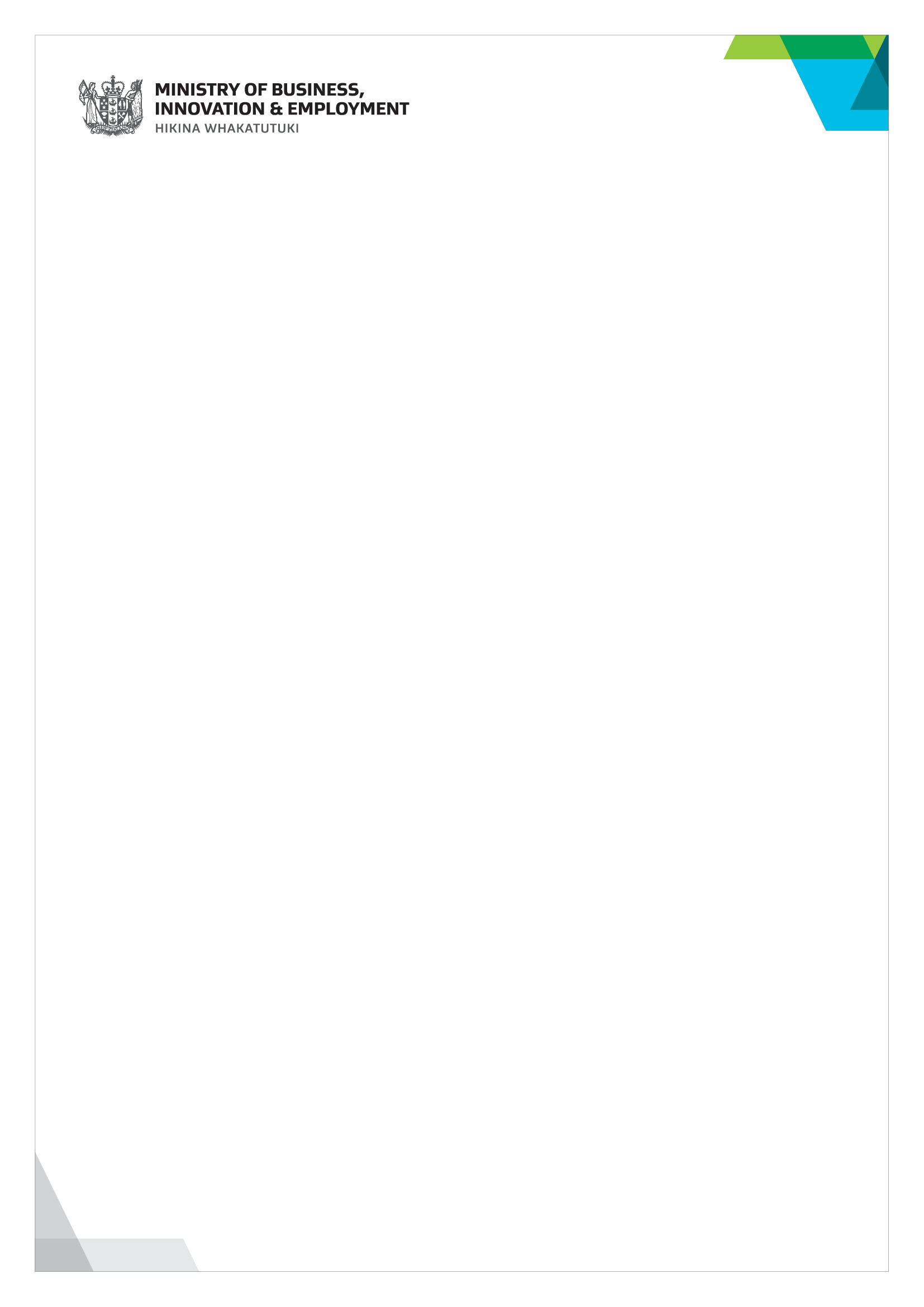 Related documents
Related documents
•
Code of Conduct
• The relevant employment agreement
•
Addressing Poor Performance Policy
• Dispute and Grievance Resolution Policy
ACT
•
Delegations
•
Addressing Fraud, Corruption and Dishonesty Policy
Help
If you have questions about these procedures, talk to your manager in the first instance.
Managers should seek advice from HR.
INFORMATION
OFFICIAL
THE
UNDER
MBIE-MAKO-19814803
MBIE-MAKO-14903905
Date of issue:
05/01/2015
Page:
Page 9 of 9
RELEASED
Next Review:
05/01/2016
Last review:
05/01/2015
Approved by:
Chief Executive
Date:
05/01/2015
Policy Owner:
General Manager People and Capability
Classification
UNCLASSIFIED
ADDRESSING CONDUCT AND BEHAVIOUR PROCEDURE
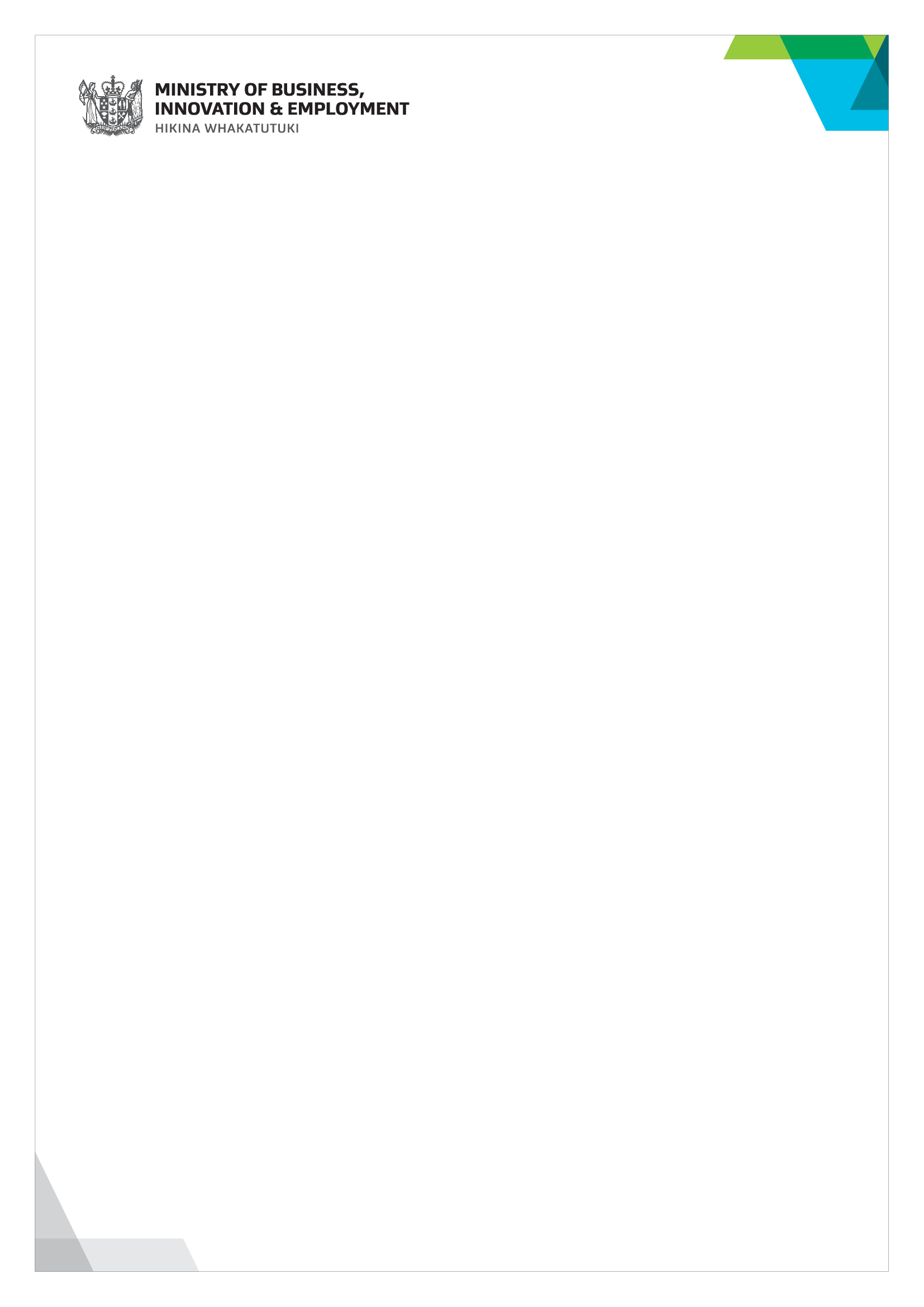
5
Addressing Fraud, Corruption and Dishonesty Policy &
Procedure
This policy is part of a suite of 3 policies to do with conduct which includes the:
•
Addressing Conduct and Behaviour policy, the overarching umbrella policy for
ACT
managing conduct and behavioural issues of all staff, and
•
Protected Disclosure policy, which deals with serious wrongdoing as defined by the
Protected Disclosure Act 2000.
Each policy sets out how conduct issues wil be managed.
Purpose
The Addressing Fraud, Corruption and Dishonesty Policy applies to the prevention, detection,
investigation, and resolution of dishonesty, including fraud, corruption and dishonest
behaviour by staff as defined.
For ease of use the terms fraud, corruption and dishonesty wil be included under the single
INFORMATION
term ‘dishonest[y]’ in this policy.
The Policy provides for investigation of all allegations and incidents, and where sufficient
evidence of dishonesty exists, the pursuit of such al egations to their conclusion, including as
appropriate disciplinary procedures, referral to the police, prosecution and the recovery of
assets.
Fraud, corruption and other dishonest behaviour wil not be tolerated. Where staff are found
to have acted in a dishonest way, this wil be treated as misconduct or serious misconduct for
OFFICIAL
the purposes of the Ministry’s Addressing Conduct and Behaviour Policy.
Scope
THE
This policy applies to all staff (including current and former employees, contractors,
consultants, secondees, interns and volunteers).
Escalation process
The onus is on the relevant Manager of the Business Group concerned to advise their
UNDER
management chain on a no surprises basis. A Deputy Chief Executive may escalate issues to
the Chief Executive where the issues have organisational-wide implications.
Policy statements
The Ministry of Business Innovation and Employment’s (the Ministry)
Code of Conduct sets out
standards of behaviour expected of all employees and secondees (onshore and offshore), and
also to Ministry’s engaged contractors, consultants, vendors and/or other parties with a
business relationship with the Ministry. These standards reflect the fundamental
RELEASED
MBIE-MAKO-16510066
Date of issue:
20/04/2018
Page:
Page 1 of 8
Next Review:
20/04/2019
Last review:
11/07/2018
Approved by:
Chief Executive
Date:
17/04/2018
Policy Owner:
General Manager, Enterprise Risk and Assurance
Classification
UNCLASSIFIED
ADDRESSING FRAUD, CORRUPTION AND DISHONESTY POLICY
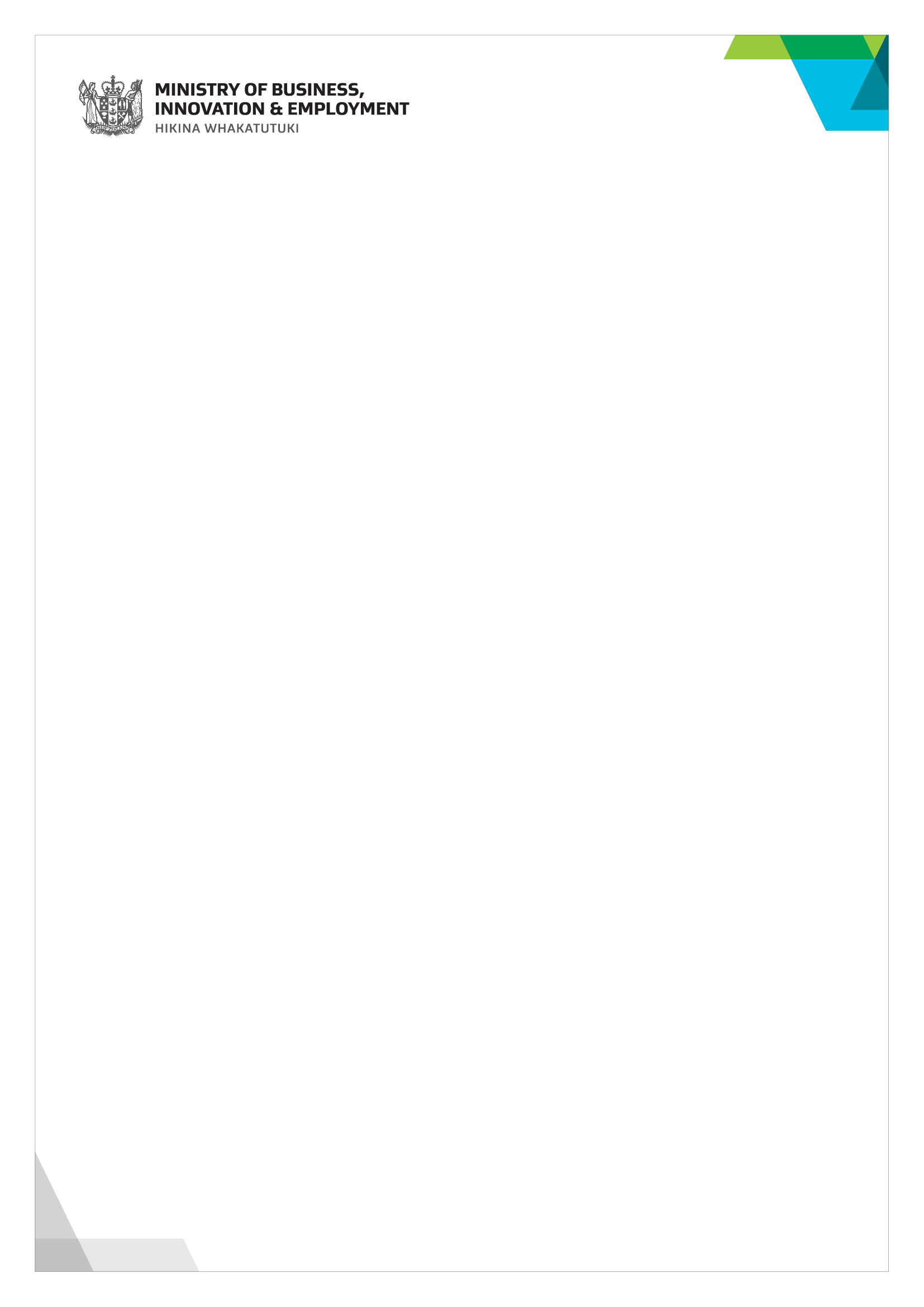
requirements of courtesy, professionalism and integrity to ensure that all staff provide high
quality services and policy advice to the Government, the public and our clients.
In most instances allegations must be forwarded to the Integrity Team to investigate because
of their very nature and the significant potential risks they pose to the Ministry – its staff and
systems – , in the way of bribery, corruption, criminal activity, conspiracy, declared or
undeclared interests, dishonesty, theft, etc., that could adversely impact on the Ministry’s
ACT
reputation and integrity.
The Integrity Team is resourced with expert knowledge, skil s and tools to investigate
allegations of criminal behaviour onshore and offshore.
Principles
•
Transparency –
All staff are advised what constitutes unacceptable behaviour and the
processes that will be used to address it. This is covered at induction for all staff and
awareness training for managers on their investigative responsibilities and in recognising
“red flags” that may indicate incidents of dishonesty.
•
Broad application –
Managers and staff must report allegations or suspected incidents of
INFORMATION
dishonesty and cases wil be investigated without regard to the suspected staff member’s
length of service, position/title, or relationship to the Ministry. Former staff may also
report suspected dishonesty.
•
Responsibility – It is the responsibility of all staff to report allegations or suspected
incidents of dishonesty immediately in accordance with step one of the guidelines outlined
in this policy.
•
Fairness – Principles of fairness and natural justice, statutory obligations under the
OFFICIAL
Employment Relations Act 2000, statutory obligations of the Ministry, Code of Conduct
and due HR and Legal policies and processes (e.g. performance management, disciplinary
and dismissal, etc.) apply when dealing with dishonesty allegations.
THE
•
Privacy – All reports of dishonesty and all investigations are dealt with appropriately in
terms of the Privacy Act.
•
Authority to investigate –
Those authorised to investigate allegations or incidents of
dishonesty will have access as necessary to all Ministry assets, information repositories
and facilities, and may undertake surveil ance to establish the truth or otherwise of
allegations made.
UNDER
•
Timeliness – Allegations or incidents of dishonesty are reported as soon as possible and
priority attention will be given to the investigation of them.
•
Security –
the needs of the complainant and the staff against whom the allegation has
been made for protection, security and support wil be addressed.
•
Risk Management – Regular reviews will be undertaken of transactions, activities or
locations that may be susceptible to fraud, corruption and dishonesty.
RELEASED
MBIE-MAKO-16510066
Date of issue:
20/04/2018
Page:
Page 2 of 8
Next Review:
20/04/2019
Last review:
11/07/2018
Approved by:
Chief Executive
Date:
17/04/2018
Policy Owner:
General Manager, Enterprise Risk and Assurance
Classification
UNCLASSIFIED
ADDRESSING FRAUD, CORRUPTION AND DISHONESTY POLICY
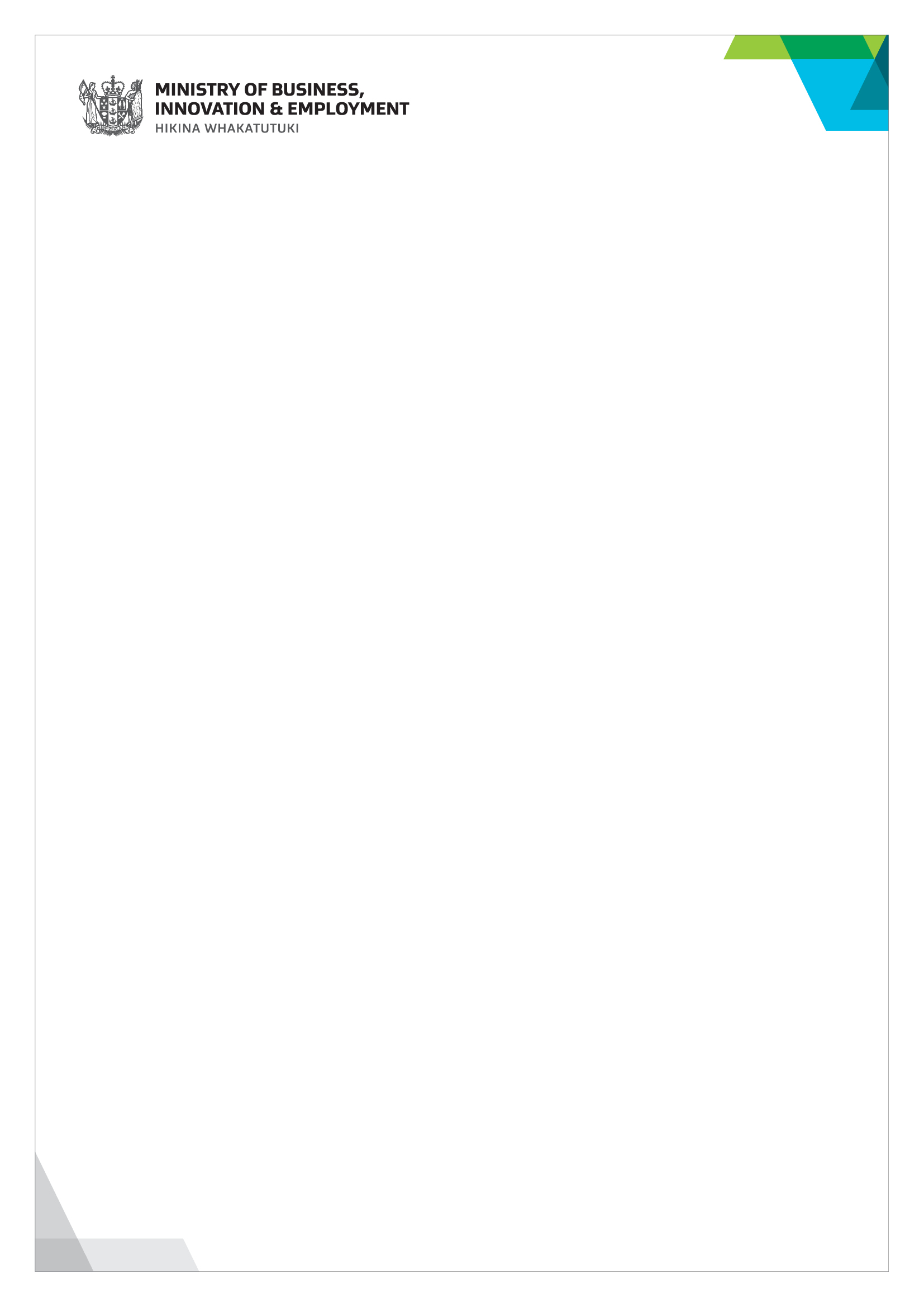
•
Communication –
Lessons learned from the outcomes of dishonesty investigations will be
communicated to staff.
•
Continuous Improvement – Lessons learned will be built into ongoing training, and
improvements made to integrity controls, processes and systems should an investigation
confirm any gaps or weaknesses.
ACT
Definition of terms
Fraud is defined as: Deliberate action intended to gain improper advantage for the staff
member.
Examples of fraud (this list is not exhaustive) include:
• Falsely altering any application or document or systems
• Forging a document
• Issuing a genuine document improperly.
Corruption is defined as: Dishonest activity in which a staff member abuses/misuses his or her
position of power, authority or trust, in order to achieve some personal gain or advantage for
INFORMATION
him or herself or for another person or entity.
Examples of corruption (this list is not exhaustive) include:
• Asking for or accepting or offering a gift, bribe or benefit or payment or other favours in
return for the provision of Ministry’s services. (Note accepting a gift may be appropriate in
some circumstances but al gifts must be disclosed in an MBIE Gift Register)
• Selling customer or other Ministry information
OFFICIAL
• Improper accessing, processing or action of any document, application or systems with the
desire/intent to deceive or gain personally, or on someone else’s behalf or for someone
else’s gain
THE
• Deciding not to take some action, such as to investigate or highlight some corrupt activity
by a customer or staff member, when that inaction improperly benefits them, you, or
some other person (e.g. willfully ignoring an unlawful act because the customer promises
you a discount on purchases).
Dishonesty is defined as: dishonest behavior, deceit, or acting without authority in their role
and acting contrary to the intere
UNDER sts of MBIE, and includes fraud and corruption as defined
above.
Examples of dishonesty (this list is not exhaustive) include:
• Criminal activity, e.g. theft of Ministry’s assets (property, systems, equipment, funds,
information). (Note: theft of kitchen, bathroom or stationery supplies should be referred
to your manager and your local Facilities Team).
• Use of Ministry’s assets (property, systems, equipment, funds, information) for personal
gain, or for another person’s gain, where you or that person are not entitled to expect
RELEASED
MBIE-MAKO-16510066
Date of issue:
20/04/2018
Page:
Page 3 of 8
Next Review:
20/04/2019
Last review:
11/07/2018
Approved by:
Chief Executive
Date:
17/04/2018
Policy Owner:
General Manager, Enterprise Risk and Assurance
Classification
UNCLASSIFIED
ADDRESSING FRAUD, CORRUPTION AND DISHONESTY POLICY
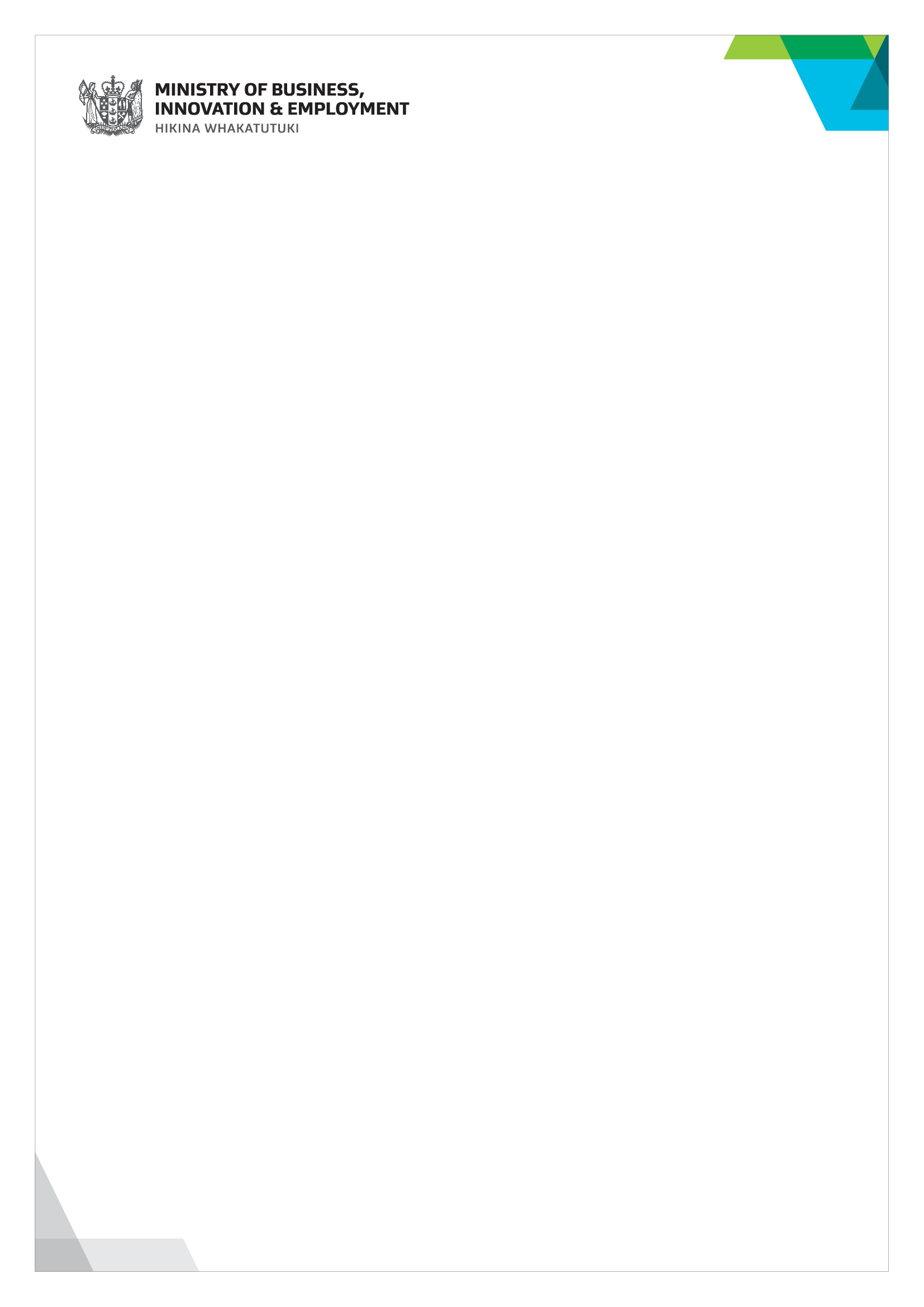
such use. (Note: limited use of Ministry’s assets is allowable in some cases – refer to the
Code of Conduct).
• Possession of objectionable, offensive or pornographic material at work using MBIE
facilities or premises.
Procedure
ACT
It is critical that the steps below are followed:
Step 1 Reporting allegations or suspected incidents of dishonesty
Report it and take no other action – If you see or become aware of any possible alleged or
suspected incidents of dishonesty occurring within the Ministry as described above (whether it
be by a fellow team member, a manager, or a contractor) you must raise it with the Ministry in
person or in writing in one of the following ways:
a) Inform the Integrity Team using th
e Alleged Fraud Corruption and Dishonesty event
reporting form and emailing it t
o [email address].
b) Anonymously through the Ministry’s Integrity Line (cal 0800 463 676 within NZ, or call
INFORMATION
0064 212 3025 from overseas).
c) Inform your manager.
d) Inform your manager’s manager or someone higher up in the organisation.
e) Inform the Deputy Chief Executive Corporate, Governance and Information.
f) Where you think it is not appropriate to tell any of these people, tell the Chief Executive
(CE) in person or in writing.
OFFICIAL
g) Where you are unsure about whether or how to raise the matter, talk to a professional
adviser such as your union or your lawyer.
Members of the public can also report alleged dishonesty by Ministry staff directly through to
THE
the Ministry’s Integrity Line.
Step 2 Receipt of al egations of dishonesty
Refer it and take no other action – The person who receives information of alleged or
suspected incidents of dishonesty must notify the Integrity Team of the information as soon as
possible, and in the case of receiving oral information, ensure any oral discussion has been
recorded in writing. They must a
UNDER lso advise the complainant in writing that they have reported
the matter to the Integrity Team.
The Integrity Team on receipt of the notification will assess the immediate internal and
external risks and notify the Chairperson of the Assessment Team of the al eged dishonesty
and wil convene an Assessment Team meeting.
The Assessment Team members consists of the Integrity Team; a senior Human Resources (HR)
representative from People and Capability; a senior representative from Legal Services; the
line manager and one-up manager if the staff member is identified, and Business Manager for
that business group.
RELEASED
MBIE-MAKO-16510066
Date of issue:
20/04/2018
Page:
Page 4 of 8
Next Review:
20/04/2019
Last review:
11/07/2018
Approved by:
Chief Executive
Date:
17/04/2018
Policy Owner:
General Manager, Enterprise Risk and Assurance
Classification
UNCLASSIFIED
ADDRESSING FRAUD, CORRUPTION AND DISHONESTY POLICY
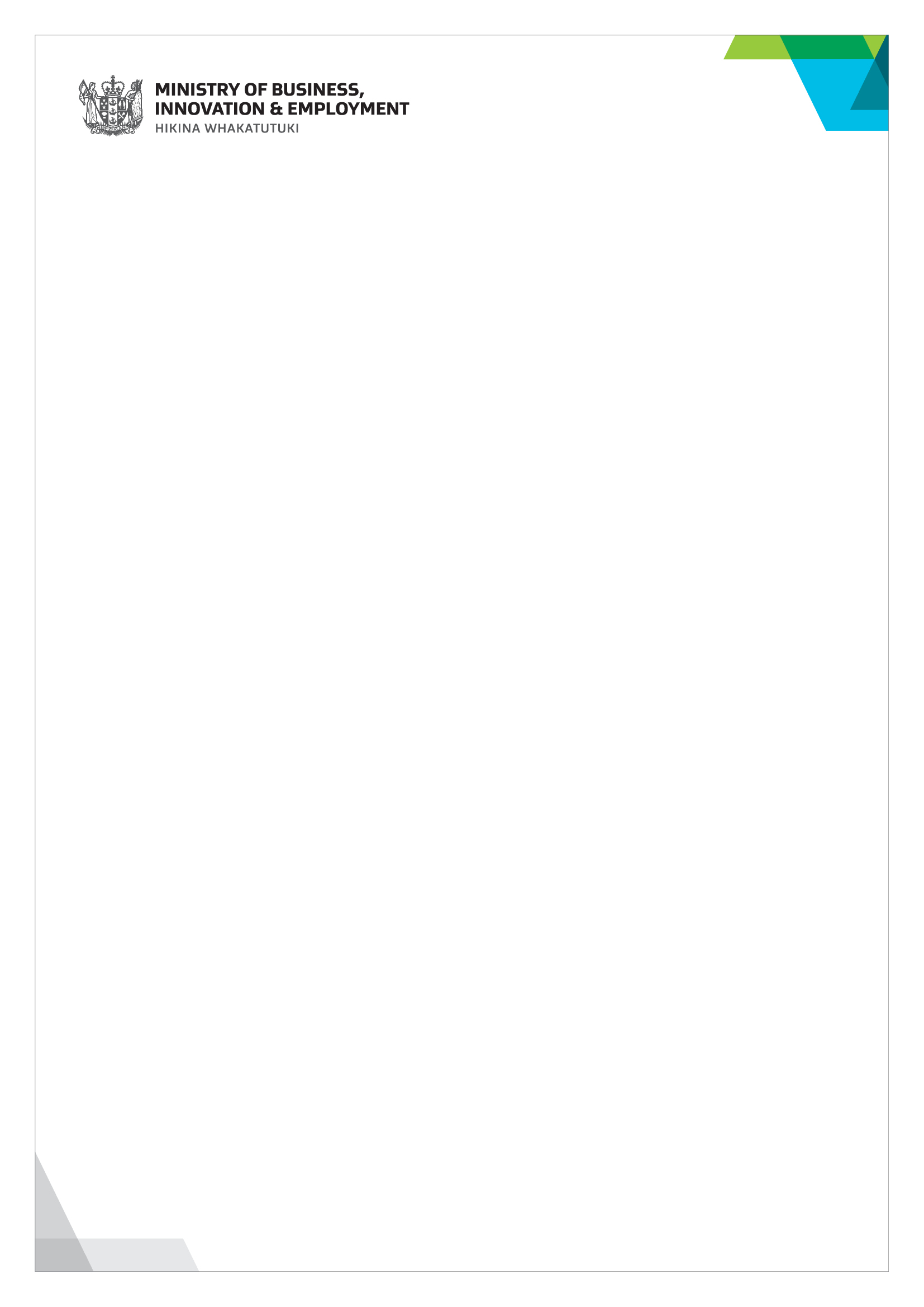 Investigating Dishonesty
Investigating Dishonesty
Step 3 Decide whether an investigation is warranted
The Assessment Team will consider all al egations or suspected incidents of dishonesty to
establish if they meet the dishonesty threshold to be investigated by the Assessment Team in
accordance with this policy. Any decision by the Assessment Team not to proceed wil be
ACT
formally documented along with the rationale.
If the Assessment Team decides the al egations do not meet the dishonesty threshold to be
investigated by the Assessment Team, the matter wil be referred back to the staff member’s
manager under the Addressing Conduct and Behaviour Policy.
Step 4 Investigating the Al egations
The Assessment Team wil , on behalf of the Business Group concerned, direct the conduct of
the ongoing investigation, monitor progress, and provide a quality assurance and supervisory
role of the investigation until it is completed.
In determining who should conduct the investigation, the Assessment Team wil consider the
need for independence or perceived need for independence, any possible conflict of interest
(although being in the same Business Group is not in itself a conflict of interest), availability to
INFORMATION
complete the investigation in a timely manner and capability and seniority in order to generate
a credible and robust finding.
The person assigned to do the investigation (referred to as the investigator) may interview a
number of people ranging from the complainant, witnesses and suspected staff member. The
timing of when the interviews are conducted wil be determined on a case by case basis.
Before interviewing the suspected staff member, except to the extent that it would
compromise an effective interview or an effective investigation, the
OFFICIAL investigator will provide
the suspected staff member with an overview in writing in advance of the areas that they are
to be questioned about and
the right to support and the possible disciplinary consequence if
the al egation is found to have substance.
THE
At the interview the investigator wil advise the suspected staff member of the details of the
al egation, the procedure they intend to fol ow, and seek the staff member’s comments about
the allegation.
The investigator will also keep the Assessment Team and the complainant, regularly informed
about the progress of the investigation.
UNDER
The investigator will have access to Ministry premises and the authority to examine, copy,
photograph, and/or remove all or any portion of the contents of files, desks, cabinets, and
other storage facilities on the premises. The investigator does not need to advise or obtain the
consent of any individual who might use or have custody of any such items or facilities when it
is within the scope of their investigation.
Searches and surveil ance may be undertaken where necessary to prove or disprove the
allegations made. These wil be conducted with due regard to the law, privacy and procedural
fairness. Such searches or surveillance could include (and are not limited to) monitoring of
RELEASED
MBIE-MAKO-16510066
Date of issue:
20/04/2018
Page:
Page 5 of 8
Next Review:
20/04/2019
Last review:
11/07/2018
Approved by:
Chief Executive
Date:
17/04/2018
Policy Owner:
General Manager, Enterprise Risk and Assurance
Classification
UNCLASSIFIED
ADDRESSING FRAUD, CORRUPTION AND DISHONESTY POLICY
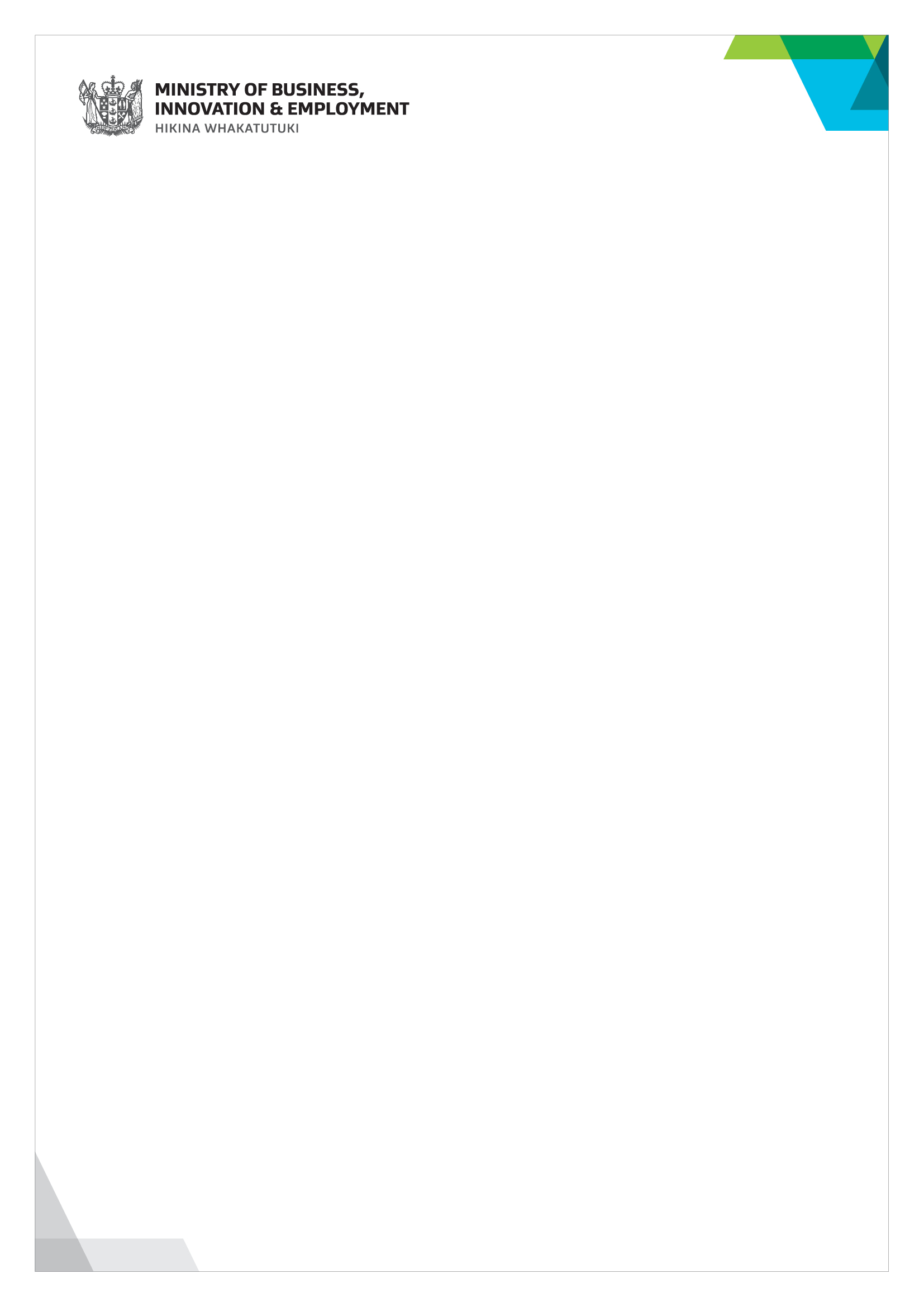
computer use, emails, phone calls and texts or covert surveillance (e.g. cameras). If a case is
not proven by the surveillance all surveillance material will be destroyed.
The decision to use covert surveil ance must be first discussed with Legal Services and formally
authorised at Deputy Chief Executive level with notification to the Chief Executive.
Step 5
Concluding an Investigation
ACT
The investigator will assess all relevant information and evidence gathered and will prepare a
report outlining what the investigation has found which wil be provided to the Assessment
Team for closure.
The Assessment Team in conjunction with the manager will decide whether any further action
is required depending on what the investigation has found.
Depending on the outcome of the investigation, the Ministry may:
• Take no further action;
• Instigate the Ministry’s Addressing Conduct and Behaviour Policy and Procedures;
• Forward the information to the Police for criminal investigation; INFORMATION
• Make changes to processes, practices, systems, controls or policies as deemed
appropriate.
The staff member will be advised in writing of the outcome of the investigation.
The complainant will also be advised in writing of the investigation.
Relevant legislation
OFFICIAL
• Employment Relations Act 2000
• State Sector Act 1988
• Protected Disclosures Act 2000
THE
• Human Rights Act 1993
• Privacy Act 1993
• Official Information Act 1982
Other related docum
UNDER
ents
•
Event Reporting Form
•
Code of Conduct
•
Standards of Integrity and Conduct (State Services Code of Conduct)
•
Conflict of Interest Policy and Procedure
•
MBIE Addressing Conduct and Behaviour Policy and
Procedure
•
Sensitive Expenditure Policy
RELEASED
MBIE-MAKO-16510066
Date of issue:
20/04/2018
Page:
Page 6 of 8
Next Review:
20/04/2019
Last review:
11/07/2018
Approved by:
Chief Executive
Date:
17/04/2018
Policy Owner:
General Manager, Enterprise Risk and Assurance
Classification
UNCLASSIFIED
ADDRESSING FRAUD, CORRUPTION AND DISHONESTY POLICY
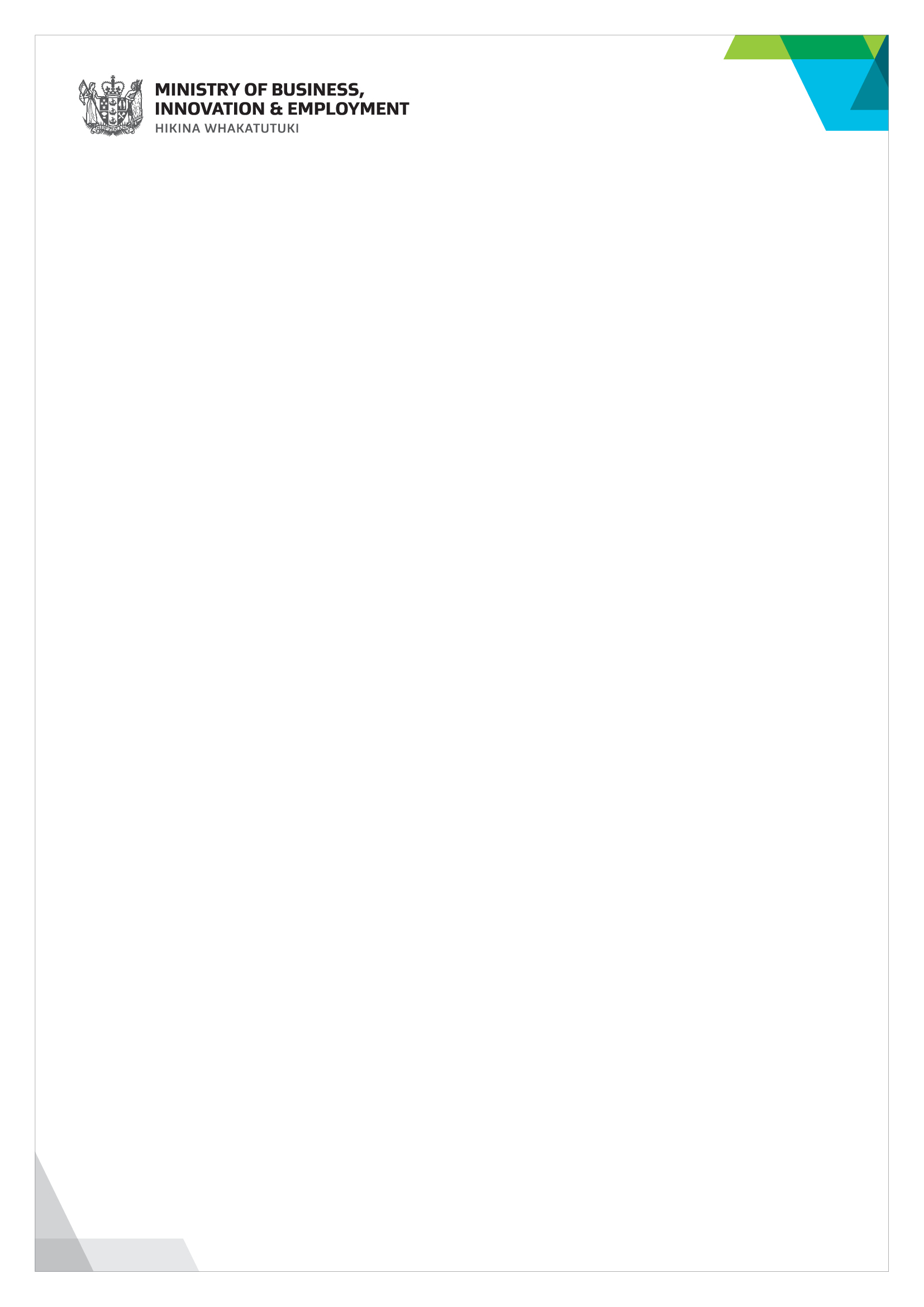
•
Relevant employment agreements
Key accountabilities and responsibilities
Staff
All staff are expected to make themselves aware of and comply with this policy. In addition all
ACT
staff are expected to:
• Report al egations or suspected incidents of dishonesty immediately.
• Alert their manager where they believe the opportunity for dishonest behaviour exists
because of poor procedures or lack of effective controls.
• Provide full assistance in any investigation by providing all relevant information and co-
operating in interviews.
Managers
Managers in the Ministry are also expected to:
• Deal with any dishonesty allegations in accordance with the Ministry’s policy and
INFORMATION
procedures.
• Reinforce integrity behaviour within their branch/team.
• Ensure that staff members are aware of the Ministry’s policies, control and assurance
systems and also their particular roles and responsibilities.
• Be accountable for implementing the approved outcome(s) of any dishonesty
investigation.
OFFICIAL
• Undertake improvements to remedy weaknesses in internal controls and processes or
otherwise mitigate unacceptable risks exposed in the course of the investigation.
Senior Managers
THE
Senior Managers are also expected to:
• Ensure that appropriate policies and guidelines are in place and that they are
communicated across the Ministry.
• Support the processes and guidelines outlined in this policy.
• Ensure investigations into dishonesty are robust and credible and comply with this policy.
UNDER
Help
If you have questions about this policy, talk to the Integrity Team within Enterprise Risk and
Assurance
([email address]).
Measures
The measures of success of this policy are:
RELEASED
MBIE-MAKO-16510066
Date of issue:
20/04/2018
Page:
Page 7 of 8
Next Review:
20/04/2019
Last review:
11/07/2018
Approved by:
Chief Executive
Date:
17/04/2018
Policy Owner:
General Manager, Enterprise Risk and Assurance
Classification
UNCLASSIFIED
ADDRESSING FRAUD, CORRUPTION AND DISHONESTY POLICY
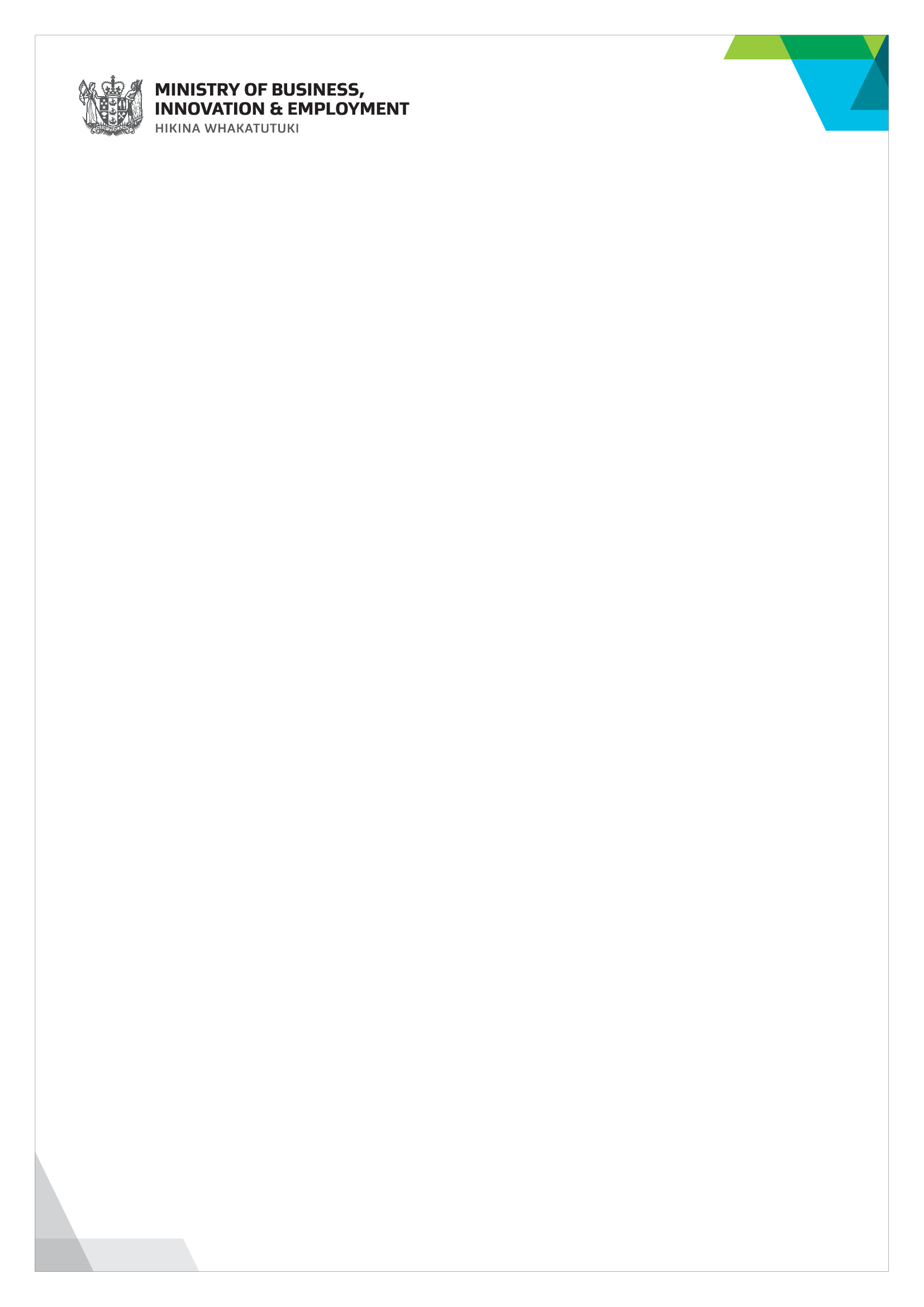
• Allegations or suspected incidents of dishonesty are resolved to final outcome.
• Risks associated with fraud prevention are successfully managed.
• Effective changes are made to business practices as a result of lessons learned.
ACT
INFORMATION
OFFICIAL
THE
UNDER
RELEASED
MBIE-MAKO-16510066
Date of issue:
20/04/2018
Page:
Page 8 of 8
Next Review:
20/04/2019
Last review:
11/07/2018
Approved by:
Chief Executive
Date:
17/04/2018
Policy Owner:
General Manager, Enterprise Risk and Assurance
Classification
UNCLASSIFIED
ADDRESSING FRAUD, CORRUPTION AND DISHONESTY POLICY
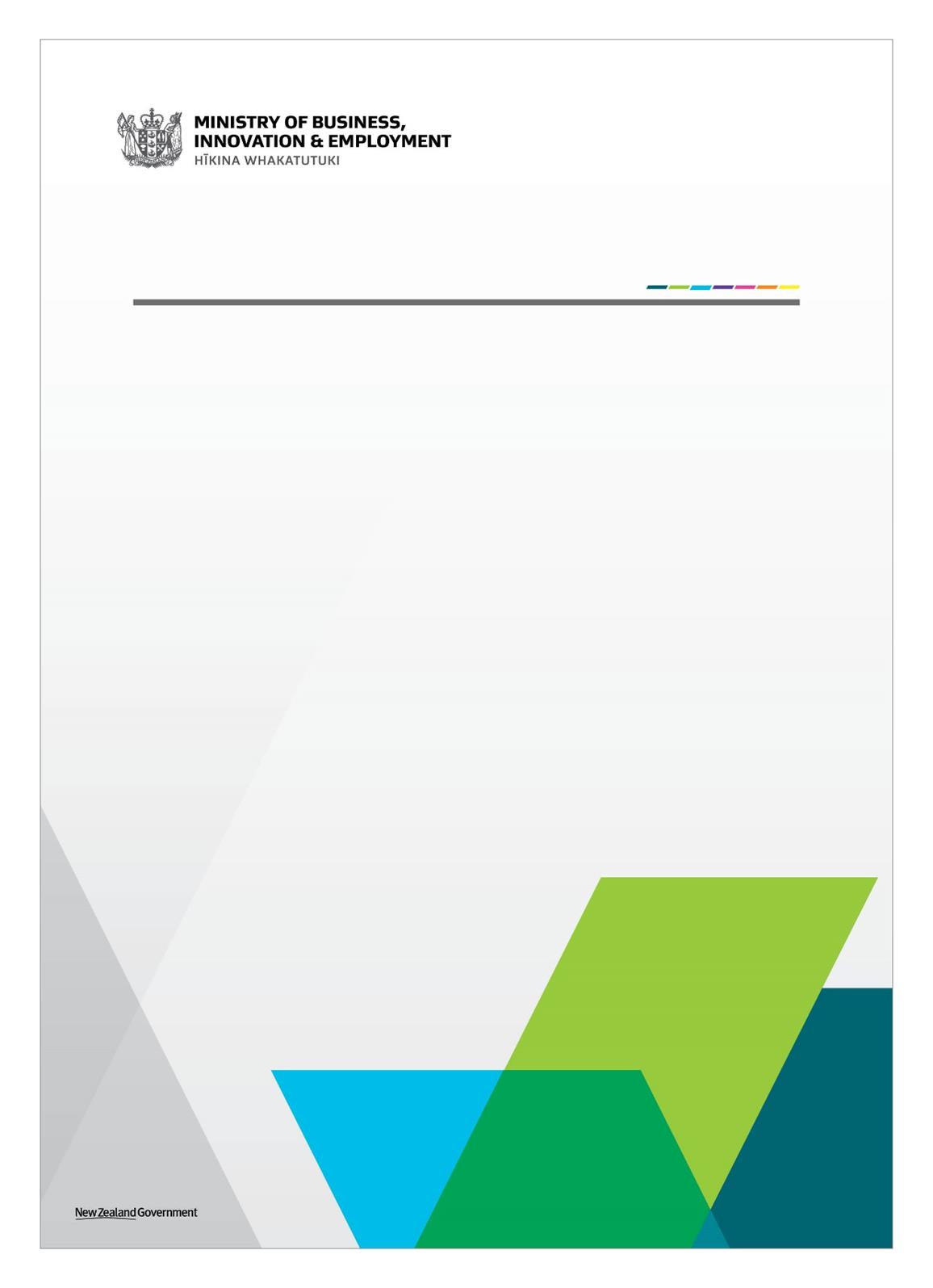

6
ACT
Sensitive Expenditure Policy
January 2019
INFORMATION
Version 54.1
OFFICIAL
THE
UNDER
RELEASED
Sensitive Expenditure Policy
Date of issue: 04/02/2019
Next Review: 09/08/2021
Approved: Chief Executive
Policy Author: General Manager Financial Control
Policy Owner: Chief Financial Officer
Page
1 of
11
link to page 38 link to page 38 link to page 38 link to page 38 link to page 38 link to page 38 link to page 39 link to page 39 link to page 39 link to page 39 link to page 40 link to page 40 link to page 40 link to page 41 link to page 41 link to page 41 link to page 42 link to page 42 link to page 42 link to page 42 link to page 43 link to page 43 link to page 43 link to page 44 link to page 44 link to page 44 link to page 44 link to page 45 link to page 46
Table of
Contents
1.0 Purpose ................................................................................................ 3
2.0 Scope ................................................................................................... 3
3.0 Contact for help ..................................................................................... 3
4.0 Definition of terms ................................................................................. 3
5.0 Policy statements .................................................................................. 3
5.1 Sensitive Expenditure Principles ............................................................ 3
5.2 Approval and documentation ................................................................ 4
ACT
5.3 Travel expenditure .............................................................................. 4
5.4 Entertainment, hospitality, gifts and koha (non-staff) .............................. 4
5.4.1 Providing hospitality and entertainment ........................................... 4
5.4.2 Purchasing and consumption of alcohol ............................................ 5
5.4.3 Giving gifts ................................................................................... 5
5.4.4 Giving koha .................................................................................. 5
5.5 Staff support and welfare expenditure (including staff functions) .............. 6
5.5.1 Staff gifts and rewards ................................................................... 6
INFORMATION
5.5.2 Staff farewell, retirements and other celebrations .............................. 6
5.5.3 End of year staff functions .............................................................. 7
5.5.4 Staff sponsorship and staff social clubs ............................................ 7
5.5.5 Care of dependants ....................................................................... 7
5.6 Breaching this Policy ......................................................................... 7
6.0 Key accountabilities and responsibilities .................................................... 8
OFFICIAL
7.0 Procedures ............................................................................................ 8
8.0 Related MBIE policies and documents ....................................................... 8
9.0 Relevant legislation and regulations ......................................................... 9
10.0 Measures of success of the Policy ........................................................... 9
THE
11.0 Consultation in reviewing this Policy ....................................................... 9
12.0 Compliance management ...................................................................... 9
13.0 Training and communication ................................................................ 10
Appendix 1: Sensitive Expenditure Guidance - Quick Reference ...................... 11
UNDER
RELEASED
Sensitive Expenditure Policy
Date of issue: 04/02/2019
Next Review: 09/08/2021
Approved: Chief Executive
Policy Author: General Manager Financial Control
Policy Owner: Chief Financial Officer
Page
2 of
11
1.0 PURPOSE
The purpose of this policy is to outline how the Ministry of Business, Innovation and
Employment (the Ministry) manages sensitive expenditure and to provide context on what is
considered to be reasonable expenditure of public funds.
The policy is designed to provide staff with guidance on financial prudence and provide
support for expenditure incurred, within the policy guidance, when expenditure may be
subjected to audit, parliamentary or public scrutiny.
ACT
2.0 SCOPE
This policy applies to all staff, secondees and contractors, employed or engaged on any basis
by the Ministry, whether they are casual, temporary or permanent, whether full time or part
time and whether they are located in New Zealand or in any other country.
The Policy does not apply to any payments made through any payroll related to the Ministry.
Where sensitive expenditure is covered by an individual’s employment agreement (including
Offshore Assignments), that agreement will override this policy. INFORMATION
3.0 CONTACT FOR HELP
Please contact the Compliance Specialist or the Finance Lead Control in the Financial
Accounting and Control team, Finance and Performance for more information.
4.0 DEFINITION OF TERMS
Term
Definition
OFFICIAL
Currency
Unless otherwise stated, any reference to currency in this policy
is denominated in New Zealand dollars.
Sensitive expenditure
Is expenditure that could be perceived as providing a private
THE
benefit to an individual staff member, considered unusual or
controversial upon audit, parliamentary or public scrutiny, or
does not fall within normal scope of Ministry business.
5.0 POLICY STATEMENTS
UNDER
5.1 Sensitive Expenditure Principles
The spending of public money requires a high degree of transparency and financial prudence
taking into account public expectations and perceptions of appropriateness, efficiency and
thrift.
Sensitive expenditure decisions must:
• demonstrate integrity, honesty and sound judgement,
• be able to withstand audit, parliamentary and public scrutiny,
RELEASED
• have a business purpose and therefore any private benefit gained must be incidental
to this business purpose,
Sensitive Expenditure Policy
Date of issue: 04/02/2019
Next Review: 09/08/2021
Approved: Chief Executive
Policy Author: General Manager Financial Control
Policy Owner: Chief Financial Officer
Page
3 of
11
• be consistent with the Ministry’s purpose, operating model and character,
• be able to demonstrate and uphold impartiality,
• be transparent,
• be reasonable, having regard to the circumstances,
• be appropriate in all respects.
5.2 Approval and documentation
Sensitive expenditure, regardless of how it is procured, must only be approved if:
ACT
• it complies with this policy,
• it is appropriately authorised in accordance with the Financial Delegations Policy and
the ‘one-up’ principle is applied in relation to any payment in respect of the approver,
(i.e. you cannot authorise a payment in respect to yourself, therefore your manager or
their manager must approve any expenditure related to you, within their financial
delegation),
• it is within budget,
• it is appropriately documented and complies with all the requirements of the
Procurement Policy and Procedures,
• a description of the business purpose for incurring the expenditure is provided, if this
INFORMATION
is not clearly identifiable as part of the third party documentation,
• the identification of the recipient(s) of the expenditure is provided, if this is not clearly
identifiable as part of the third party documentation,
In exceptional circumstances the Chief Executive or Deputy Chief Executive may grant
approval for exceptions to this policy.
OFFICIAL
5.3 Travel expenditure
The requirements that must be adhered to in relation to travel expenditure, are set out in
the Travel Policy.
THE
The Sensitive Expenditure Guidance - Quick Reference table in Appendix One indicates the
level of reasonable expenditure which may be funded by the Ministry for meals while
travelling.
5.4 Entertainment, hospitality, gifts and koha (non-staff)
This section sets out the expectations and responsibilities relating to:
UNDER
1. Providing hospitality and entertainment
2. Purchasing and consumption of alcohol
3. Giving gifts
4. Giving koha
5.4.1 Providing hospitality and entertainment
Hospitality and entertainment may be provided to external individuals or organisations
for the following business purposes:
RELEASED
• external stakeholder engagement,
• building relationships,
Sensitive Expenditure Policy
Date of issue: 04/02/2019
Next Review: 09/08/2021
Approved: Chief Executive
Policy Author: General Manager Financial Control
Policy Owner: Chief Financial Officer
Page
4 of
11
• representing the Ministry,
• reciprocating hospitality where this has a clear business purpose and is reasonable
within the circumstances,
• where there is a cultural expectation or official obligation to do so.
The Sensitive Expenditure Guidance - Quick Reference table in Appendix One indicates the
level of reasonable expenditure which may be funded by the Ministry for hospitality and
entertainment.
ACT
5.4.2 Purchasing and consumption of alcohol
The Ministry does not purchase alcohol, except in exceptional circumstances, which must
directly support the Ministry’s goals and purposes, or on occasions where the
consumption of alcohol would be considered appropriate for the circumstances, subject
to public scrutiny.
The Ministry may provide alcohol in the following circumstances:
• an event for external stakeholders, building relationships or representing the
Ministry, where alcohol would customarily be served,
• a significant occasion such as a launch event, opening ceremony or as a gift to a
guest speaker.
INFORMATION
The purchase of alcohol must be pre-approved by a Deputy Chief Executive or the Chief
Executive.
5.4.3 Giving gifts
As a general rule, gifts should not be given to external individuals or organisations.
However, the Ministry may provide gifts where there is a business custom or cultural
expectation to do so which aligns with a business purpose. In such instances gifts:
OFFICIAL
• must not imply any obligation or expectation of favour in return or be intended to
alter an organisation's or individual’s decision making,
• should be reasonable, modest and appropriate to the circumstances having regard
THE
for public scrutiny.
For gifts received please refer to the Conflicts of Interest Policy and Procedures and the
Conflict of Interest Register.
5.4.4 Giving koha
UNDER
Koha is a New Zealand Māori custom which can be translated as a gift, donation or
contribution and is most often given by visitors being hosted on a marae, but could also
be given to other Māori groups, entities or individuals. Traditionally Koha took the form
of food, gifts, song and personal possessions of significant value (Pounamu for example).
In modern times it normally takes the form of money. Koha is a normal business expense
subject to the guidelines for sensitive expenditure.
In the case of business conducted on behalf of the Ministry where koha is required to
present to a Marae, it is appropriate to present koha to marae in cheque form on behalf
of the Ministry Where this is not possible, you should seek advice from the Māori
RELEASED
Economic Development Unit, in the Strategic Policy and Programmes group, and the
General Manager of Financial Control. Cheques for koha, as for cheques generally, should
be requested from Finance five working days in advance.
Sensitive Expenditure Policy
Date of issue: 04/02/2019
Next Review: 09/08/2021
Approved: Chief Executive
Policy Author: General Manager Financial Control
Policy Owner: Chief Financial Officer
Page
5 of
11
Any Ministry koha should:
• support the Ministry’s business,
• be consistent with the Ministry’s purpose, operating model and character,
• be consistent with custom, given the size and mana of the Ministry’s attendance,
• align with the principles for sensitive expenditure,
• be accompanied by adequate supporting documentation and approval within
financial delegation.
ACT
5.5 Staff support and welfare expenditure (including staff functions)
This section applies to Ministry staff only (those that are paid through the Ministry payroll
and therefore does not apply to contractors) and sets out the expectations and
responsibilities in relation to:
5.5.1 Staff gifts and rewards
5.5.2 Staff farewells and retirements and other celebrations
5.5.3 End of year staff functions
5.5.4 Staff sponsorship and staff social clubs
5.5.5 Care of dependents
INFORMATION
5.5.1 Staff gifts and rewards
Gifts and rewards may be:
• gifts given as recognition for long service,
• gifts given to a staff member leaving the Ministry,
• a bouquet of flowers or gift, given to a staff member to acknowledge a significant life
event such as the birth of a baby, marriage, a bereavement or serious illness,
OFFICIAL
• given to acknowledge performance.
Such staff support and acknowledgement need not be declared in the Conflict of Interest
Register, but should be reasonable and appropriate for the circumstances.
THE
The Sensitive Expenditure Guidance - Quick Reference table in Appendix One indicates
the level of reasonable expenditure which may be funded by the Ministry for staff gifts.
5.5.2 Staff farewell, retirements and other celebrations
Hospitality and entertainment
may be provided to staff:
UNDER
• as recognition for long service,
• at a staff farewell,
• to acknowledge performance,
• to recognise a significant business achievement,
• to support internal organisational development.
The Ministry does not fund alcohol for staff functions.
The Sensitive Expenditure Guidance - Quick Reference table in Appendix One indicates
RELEASED
the level of reasonable expenditure which may be funded by the Ministry relating to staff
functions and celebrations.
Sensitive Expenditure Policy
Date of issue: 04/02/2019
Next Review: 09/08/2021
Approved: Chief Executive
Policy Author: General Manager Financial Control
Policy Owner: Chief Financial Officer
Page
6 of
11
5.5.3 End of year staff functions
The Ministry supports and encourages staff end of year celebrations. The Ministry may
assist with the cost of Ministry wide celebrations by providing a subsidy, with approval
provided by the Chief Executive. The subsidy may not be spent on alcohol.
The Sensitive Expenditure Guidance - Quick Reference table in Appendix One indicates
the level of reasonable expenditure which may be funded by the Ministry for staff end of
year functions.
Individual team functions should be organised and paid for by staff.
ACT
5.5.4 Staff sponsorship and staff social clubs
The requirements that must be adhered to in relation to staff sponsorship are set out in
the Sponsorship Policy including, the details about requests for staff sponsorship and
the required processes in considering, approving and providing staff sponsorship.
Where activities relate to the sponsorship of sports teams or other such activities, the
Sponsorship Policy should also be referred to.
5.5.5 Care of dependants
A staff member may be responsible for the care of a dependant. Unless the cost is
INFORMATION
wholly or partly the subject of a component of the remuneration under an employment
agreement, it is a personal and private expense of the staff member.
Payments for the care of the dependants, other than under employment agreements,
are to be made only in exceptional circumstances – such as when the staff member is
unexpectedly required to perform additional duties at very short notice. Any payments
for care of dependants must be reasonable and consistent with current market rates.
5.6 Breaching this Policy
OFFICIAL
5.6.1 Any breach of this policy may be deemed as serious misconduct and disciplinary
action may be taken.
THE
5.6.2 If anyone becomes aware that they have, or may have breached this policy then
they must notify their manager immediately. All managers that have been notified of a
breach of this policy must immediately notify the CFO or the DCE Corporate Governance
and Information Group, or if this is not appropriate they should inform the CE.
5.6.3 If any person working at the Ministry suspects any person has breached this policy
UNDER
they should inform one of the following:
• their manager;
• their managers’ manager;
• the internal investigations team on [email address];
• the Ministry's Integrity Line - call 0800 463 676 if in New Zealand:
or from outside New Zealand call 0064 4 212 3025.
RELEASED
Sensitive Expenditure Policy
Date of issue: 04/02/2019
Next Review: 09/08/2021
Approved: Chief Executive
Policy Author: General Manager Financial Control
Policy Owner: Chief Financial Officer
Page
7 of
11
6.0 KEY ACCOUNTABILITIES AND RESPONSIBILITIES
Role
Description of Responsibility
Chief Executive
Responsible for:
(CE)
• Approval of this policy.
• The Ministry meeting its obligations under this policy.
Policies and
Responsible for:
Procedures Sub-
• Reviewing and endorsing this policy and any associated procedures, or
ACT
committee
recommending changes to the policy.
Deputy Chief
Responsible for:
Executives
• Embedding this policy in their groups.
• Ensuring their business groups are compliant with this policy.
Policy Owner
Responsible for:
• Ensuring the policy is working effectively through regular monitoring and
(Chief Financial
reporting of compliance to the policy.
Officer)
Manager
Responsible for:
Financial
• Reviewing all sensitive expenditure for compliance with this policy and
INFORMATION
Accounting &
any Fringe Benefit Tax implications.
Control
• Reporting any non-compliance with this Policy to the CFO.
Approving
Responsible for ensuring the proposed expenditure:
Managers
• Is considered financially prudent and will withstand scrutiny.
• is necessary and reasonable, for Ministry purposes.
• is consistent with Ministry policy.
• is covered by the available budget prior to granting approval
OFFICIAL
• can be approved under the financial delegation policy and that they
have the appropriate delegation/authority to approve it.
• is supported by the appropriate documentation and is correctly coded.
THE
All staff
Responsible for:
• Complying with this and all other relevant Ministry policies.
• Obtaining, submitting and retaining necessary documentation to support
all Ministry expenditure.
UNDER
7.0 PROCEDURES
• Procurement Procedures
8.0 RELATED MBIE POLICIES AND DOCUMENTS
•
Code of Conduct
•
Conflict of Interest Policy
•
Procurement Policy
RELEASED
• Financial Delegations Policy
•
ICT Acceptable Use Policy
• Payments Policy
Sensitive Expenditure Policy
Date of issue: 04/02/2019
Next Review: 09/08/2021
Approved: Chief Executive
Policy Author: General Manager Financial Control
Policy Owner: Chief Financial Officer
Page
8 of
11
•
Sponsorship policy
•
Travel Policy
•
Offshore Assignment Manual
•
Vehicle Policy
• Alcohol & Drug Policy
9.0 RELEVANT LEGISLATION AND REGULATIONS
ACT
•
Public Finance Act 1989
•
State Sector Act 1988
• Public Audit Act 2001
•
Controlling Sensitive Expenditure: Guidelines for Public Entities
10.0 MEASURES OF SUCCESS OF THE POLICY
This policy will be monitored by Finance and Performance for effectiveness.
Internal measures of success are that all Sensitive Expenditure incurred:
• is for legitimate and valid business purposes,
•
INFORMATION
is not for personal benefit,
• has been approved within the appropriate delegation,
• is appropriate and complies with this policy in all respects.
Externally, measures of success are that spending on sensitive expenditure:
• is assessed as reasonable and appropriate when subjected to audit,
• is perceived to be a fair and efficient use of taxpayers’ money when subjected to
public scrutiny,
OFFICIAL
• will not result in any justified adverse consequences from Annual Reviews, Official
Information Act requests or general media enquiries.
11.0 CONSULTATION IN REVIEWING THIS POLICY
THE
This policy was prepared by Finance staff in consultation with all Business Managers across
the Ministry and key stakeholders.
This policy draws on previous versions of the policy and the Controller and Auditor-General
good practice guide
Controlling Sensitive Expenditure: Guidelines for Public Entities (February
2007).
UNDER
12.0 COMPLIANCE MANAGEMENT
Compliance with this Policy will be monitored by Finance and Performance on a quarterly
basis.
Staff who consider that there are grounds for enquiry into inappropriate expenditure must
advise their Manager, the Manager Financial Accounting and Control or the risk and
compliance team within Enterprise Risk and Assurance immediately. Alternatively, disclosure
RELEASED
may be made under the Protected Disclosures Act 2000 in line with the Ministry’s protective
disclosures policy.
Sensitive Expenditure Policy
Date of issue: 04/02/2019
Next Review: 09/08/2021
Approved: Chief Executive
Policy Author: General Manager Financial Control
Policy Owner: Chief Financial Officer
Page
9 of
11
Compliance management process
Compliance management tools and processes will be used to help minimise the risk of
breaches of this policy:
• Monitoring of compliance with required processes, procedures or guidelines as set
out in this policy and related mandatory procedures manuals and documents,
• Spot checks conducted by Finance and Performance on a regular basis to ensure
compliance,
• Key messages will be provided to the business where spot checks have identified
ACT
non-compliance,
• Tools such as checklists or online modules to help inform staff and managers of their
relevant obligations,
• A central register to record breaches of this policy, held by the policy owner.
These tools will assist in measurement of compliance with the policy and related mandatory
procedures, as well as identifying trends and risks to enable these to be managed
appropriately.
Compliance reporting and information
Compliance information regarding the performance of this policy will be provided to the risk
and compliance team within Enterprise Risk and Assurance on a quarterly basis.
INFORMATION
13.0 TRAINING AND COMMUNICATION
This policy will be available to view on the internal policies page of the Intranet and through
LeaderKit.
The Policy Owner will target policy users with periodic (at least yearly) reminders though
medium such as the Managers’ Update. OFFICIAL
Any amendments or substantive changes to the policy or procedures will be supported by a
communications plan.
Reports of any non-compliance to this policy will be provided to the business.
THE
UNDER
RELEASED
Sensitive Expenditure Policy
Date of issue: 04/02/2019
Next Review: 09/08/2021
Approved: Chief Executive
Policy Author: General Manager Financial Control
Policy Owner: Chief Financial Officer
Page
10 of
11
APPENDIX 1: SENSITIVE EXPENDITURE GUIDANCE - QUICK REFERENCE
Expenditure Type
Reasonable Expenditure Funded by
Natural
Ministry (GST Inclusive - NZD)
Account Code
Domestic Travel Expenditure
Breakfast
$10 - $25
3212
Lunch
$10 - $25
3212
Dinner
$25 - $45
3212
ACT
Alcohol and tips
$0
N/A
International Travel Expenditure
Guidance as per Domestic Travel limits
3232 Non-
Breakfast, Lunch & Dinner
above, however manager approval can be
Trans-Tasman
given to spend over the domestic rates
3242 Trans-
where the normal cost of meals in countries
Tasman
exceed the domestic guidelines
Alcohol
$0
N/A
Tips
Reasonable costs in context of local custom
3233
(not applicable to Trans-Tasman)
Entertainment & Hospitality
Entertaining External Clients
not more than $100 / head
3254
INFORMATION
Staff Dinners for Business Engagements
3254
(Senior Staff)
$25-45 / head
Staff Lunches for Business Engagements
$10-$20 / head
3254
Staff Morning/Afternoon Tea
$5 / head
3401
Single End of Year Function
$22.50 / head
3255
Staff Farewells & Retirements
OFFICIAL
Service less than 12 months
Farewell $0
N/A
Service > 12 months and < 2 years
Farewell $5 / head (Direct Team Only)
3263
Service > 2 years and < 5 years
$5 / head (Direct Team and Key
3263
THE Relationships) up to $100
Service > 5 years and < 20 years
$5 / head ( (Direct Team and Key
3263
Relationships) up to $250
Service > 20 years
Discuss with DCE or above
3263
Staff Gifts*
UNDER
Birth, Marriage, Sickness or Bereavement
not more than $100
3263
Performance & Long Service recognition gifts
not more than $100
3263
Birthday
$0
N/A
Leaving Gift – Service less than 2 years
$0 contribution
N/A
Leaving Gift – Service >2 years <5 years
Up to $50 contribution
3263
Leaving Gift - Service >5 years <10 years
Up to $75 contribution
3263
RELEASED
Leaving Gift - Service >10 years <15 years
Up to $100 contribution
3263
Leaving Gift – Service > 15 years
Up to $200 contribution
3263
*In most cases gifts will attract fringe benefit tax (FBT) over and above the value of the gift.
Sensitive Expenditure Policy
Date of issue: 04/02/2019
Next Review: 09/08/2021
Approved: Chief Executive
Policy Author: General Manager Financial Control
Policy Owner: Chief Financial Officer
Page
11 of
11
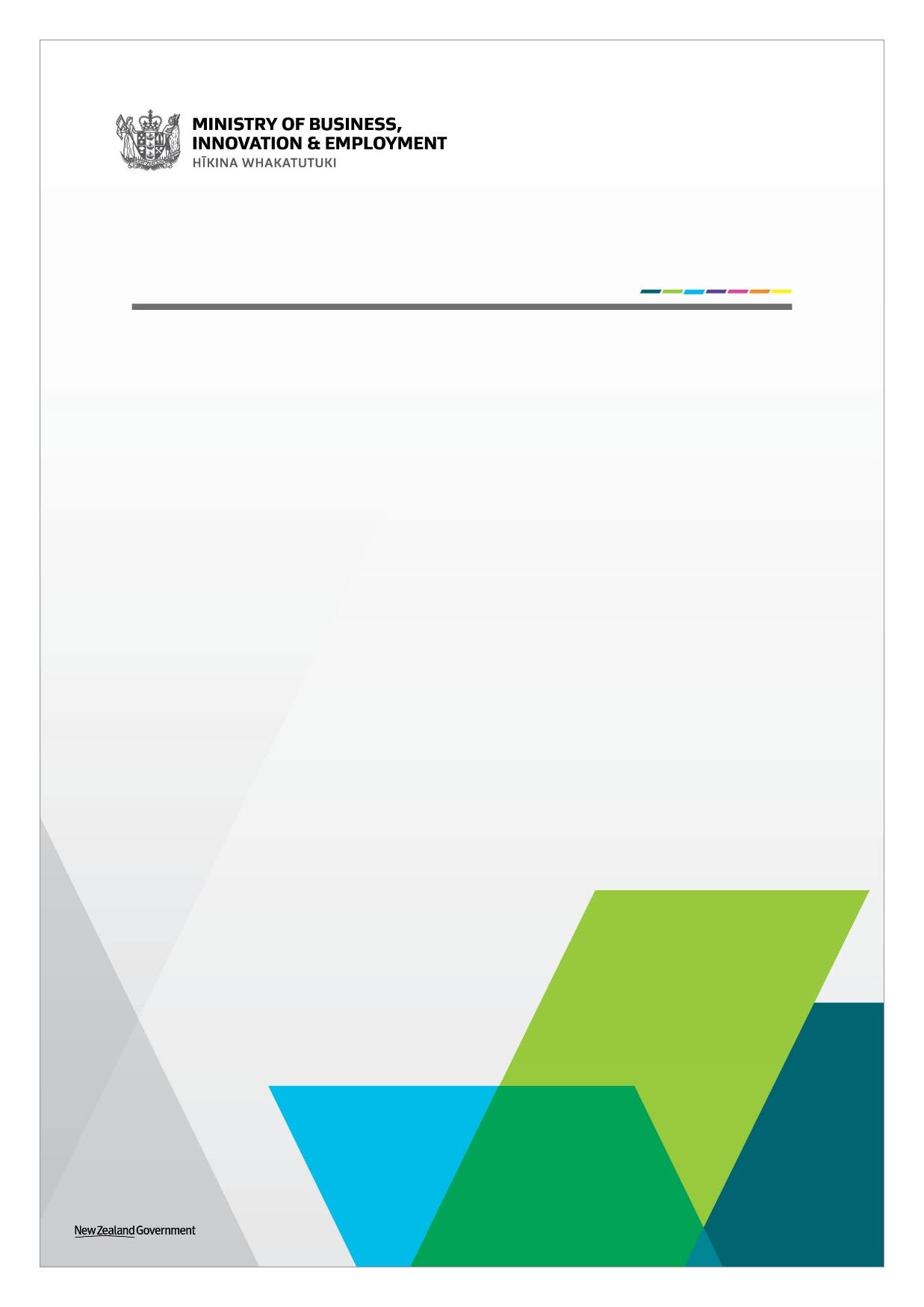
7
ACT
Information Communications
Technology (ICT) Acceptable
Use Policy
INFORMATION
OFFICIAL
THE
UNDER
RELEASED
Purpose
The purpose of this policy is to ensure all MBIE data, information and technology is used in
the correct way and for the appropriate reason.
Scope
ACT
This policy applies to all staff who use technology, including those in offshore branches
(except where it conflicts with local legislative requirements).
Help For clarification about this policy in a particular situation contact:
ICT Performance, Planning & Assurance
[email address]
INFORMATION
Definitions
Technology: For the purposes of this policy, ‘technology’ refers to any device or system
used to produce, access, store or communicate data and information.
Staff: All individuals, directly employed by MBIE, and contractors or employees of
organisations supplying services to MBIE, inclusive of individuals who are based offshore.
OFFICIAL
Appropriate use: Reasonable and responsible use which:
is predominantly for business purposes
does not impact on technology performance, speed or availability
THE
does not involve media streaming unless it is work related
does not result in unnecessary costs to MBIE
does not involve excessive storage of personal material
does not include objectionable or offensive material
is consistent with MBIEs’ values, integrity principles and Code of Conduct.
UNDER
“Bring Your Own Device (BYOD)”: Personally owned devices that are used to access MBIE
data, information and systems.
Policy Statements
1. Staff will demonstrate appropriate use of technology b
y following instructions for
safe and secure technology use.
RELEASED
2. Personal use of MBIE technology is permitted as long as it is appropriate and kept
to a minimum.
Policy: ICT Acceptable Use
2
Policy Author: Manager ICT PPA
Date of Issue: September 2016
Policy Owner: Chief Information Officer
Date of Next Review: September 2019
Policy Approver: Chief Executive
3. MBIE has the right to monitor all use of MBIE technology, systems and
information, including BYOD, to ensure usage is appropriate, safe and secure.
Key accountabilities and responsibilities
The
Chief Executive (CE) is accountable for the ICT Acceptable Use Policy.
ACT
The
Senior Leadership Team (SLT) is responsible for endorsing this Policy as well as
promoting and supporting the continuous improvement of the acceptable use of ICT in the
Ministry.
The
Deputy Chief Executive (DCE) of Corporate, Governance and Information (CGI) is
responsible for recommending that the ICT Acceptable Use Policy is endorsed by the Senior
Leadership Team.
In addition to line management responsibilities, each
Deputy Chief Executive is responsible
for receiving assurance from their general managers that their branch is complying with this
Policy and providing the Chief Executive with such assurance as necessary
INFORMATION
General Managers (GMs) are responsible for ensuring their managers and staff are made
aware of and comply with the ICT Acceptable Use Policy.
The
Chief Information Officer (CIO) is responsible for the ICT Acceptable Use Policy,
including ensuring it meets the minimum requirements for development and
implementation, it is signed off at the appropriate level, compliance can be monitored and
breaches are investigated.
OFFICIAL
The
Information Communication Technology Branch (ICT) will support the CIO to:
review the policy periodically to ensure it meets MBIE’s requirements
ensure the ICT Acceptable Use Policy is published on The Link
THE
provide reporting on MBIE’s use of Information and Communication Technology to
measure compliance and investigate breaches
ensure that the ICT Acceptable Use Policy meets the requirements of the Government
CIO and NZ Information Security Manual (NZISM).
All
managers of staff are responsible for:
UNDER
ensuring their staff are aware of this policy, procedures, and Instructions for Safe and
Secure Use; including reminding staff of their obligations under the ICT Acceptable
Use Policy
discussing use of technology with their staff to ensure use is appropriate, necessary,
and not putting MBIE at risk
reinforcing MBIE’s commitment to maximising the value realised from our investment
in technology
RELEASED
ensuring the timely return of any MBIE technology and information
reviewing reports provided by ICT to ensure that their staff have the appropriate
technology allocated, are using technology appropriately, and actioning any issues
Policy: ICT Acceptable Use
3
Policy Author: Manager ICT PPA
Date of Issue: September 2016
Policy Owner: Chief Information Officer
Date of Next Review: September 2019
Policy Approver: Chief Executive
ensuring staff receive appropriate training on how to use technology safely and
securely
the reporting of breaches of this policy to the GM and DCE in their reporting line.
All staff accessing MBIE data, information and systems are personally responsible for:
using technology appropriately
and in accordance with all established policies,
procedures, instructions, and guidelines
ACT
limiting personal use of MBIE technology to ensure that personal use does not unduly
impact productivity, threaten the security of MBIE’s ICT environment, or negatively
impact system performance and cost
registering BYOD devices
using only authorised technology to access MBIE data, information and systems
managing user accounts and passwords by following instructions for safe and secure
use
not storing MBIE data and information in locations that have not been approved by
MBIE
safely using devices which are accessing MBIE information, data and systems by
INFORMATION
maintaining an awareness of risk, in particular when using devices in public places or
on public Wi-Fi systems
labelling, sending and using messaging and documents appropriately, as per the Rules
for Document Classification
immediately reporting lost or stolen devices, including BYODs, to the ICT service desk
so that procedures can be applied to protect MBIE data, information and systems
OFFICIAL
not recording images, audio or video unless approved by all participants and classified
and stored appropriately.
THE
HR Recruitment are responsible for:
ensuring the ICT Acceptable Use Policy is sent to successful candidates (both
permanent and fixed term roles) along with their contract of employment and offer
letter and then filing the signed returned policy in employees files in MAKO
UNDER
Mandatory guidelines and processes
Instructions for Safe and Secure Technology Use
Approved ICT Devices
Rules for Document Classification
Related MBIE policies
RELEASED
MBIE Code of Conduct
Sensitive Expenditure Policy
Travel Policy
Protective Security Policy
Policy: ICT Acceptable Use
4
Policy Author: Manager ICT PPA
Date of Issue: September 2016
Policy Owner: Chief Information Officer
Date of Next Review: September 2019
Policy Approver: Chief Executive
Privacy Policy
Records Management Policy
Relevant legislation and regulations
Privacy Act 1993
Official Information Act 1982
ACT
Copyright Act 1994
Public Records Act 2005
State Services Code of Conduct
New Zealand Information Security Manual (NZISM)
State Sector Standards of Integrity and Conduct
Controlling sensitive expenditure: Guidelines for public entities
Measures of the success of the Policy
The success of this policy will be measured through the monitoring and analysis of staff use
to ensure usage is appropriate.
INFORMATION
Consultation processes in developing or reviewing this Policy
Key stakeholders were consulted in the development and consequential reviews of the ICT
Acceptable Use Policy. These include:
OFFICIAL
ICT Information and Data
ICT Strategy, Architecture and Security
ICT Security and Risk
Director of Security
THE
Business Manager & Client Relationships
Risk and Assurance
Human Resources
Legal
a sample of end users in each business group.
UNDER
Compliance Management
Managers are responsible for use of technology by their staff. They will receive reporting
from ICT to ensure that the appropriate technology is allocated, use of technology is
appropriate and costs incurred are correct.
The following compliance management tools and processes will be used to minimise the risk
RELEASED
of breaches of this policy before they occur, allow visibility of compliance against this policy
and identify trends or risks so they can be appropriately managed:
Policy: ICT Acceptable Use
5
Policy Author: Manager ICT PPA
Date of Issue: September 2016
Policy Owner: Chief Information Officer
Date of Next Review: September 2019
Policy Approver: Chief Executive
blocking access to websites, whitelisting applications, forcing document classification
and compliance to password rules, and removing access to or applications from
devices, which result in a breach of the policy
tools such as checklists or online modules to help inform staff and managers of their
obligations
reviews of performance in relation to required processes, procedures or guidelines,
set out in the mandatory procedures listed above, on a regular basis to ensure
ACT
continued improvement
breaches will be recorded in a central register.
Compliance information regarding the performance of this policy will be provided to Risk
and Assurance on a quarterly basis.
Communication and Training
The ICT Acceptable Use Policy is communicated to staff through its inclusion in the induction
process and is available on The Link as part of MBIE’s internal policies. An online module on
INFORMATION
the Learn@MBIE site provides an overview of security, including technology and cyber
security and is compulsory for all staff members to complete. There are also optional ‘tech
sessions’ provided by ICT through Learn@MBIE for staff who want training on how to use
ICT in a secure and acceptable way.
OFFICIAL
THE
UNDER
RELEASED
Policy: ICT Acceptable Use
6
Policy Author: Manager ICT PPA
Date of Issue: September 2016
Policy Owner: Chief Information Officer
Date of Next Review: September 2019
Policy Approver: Chief Executive
Document Outline
- Release doc binder.pdf
- addressing-conduct-and-behaviour-procedure.pdf
- Addressing Fraud Corruption and Dishonesty Policy.pdf











































